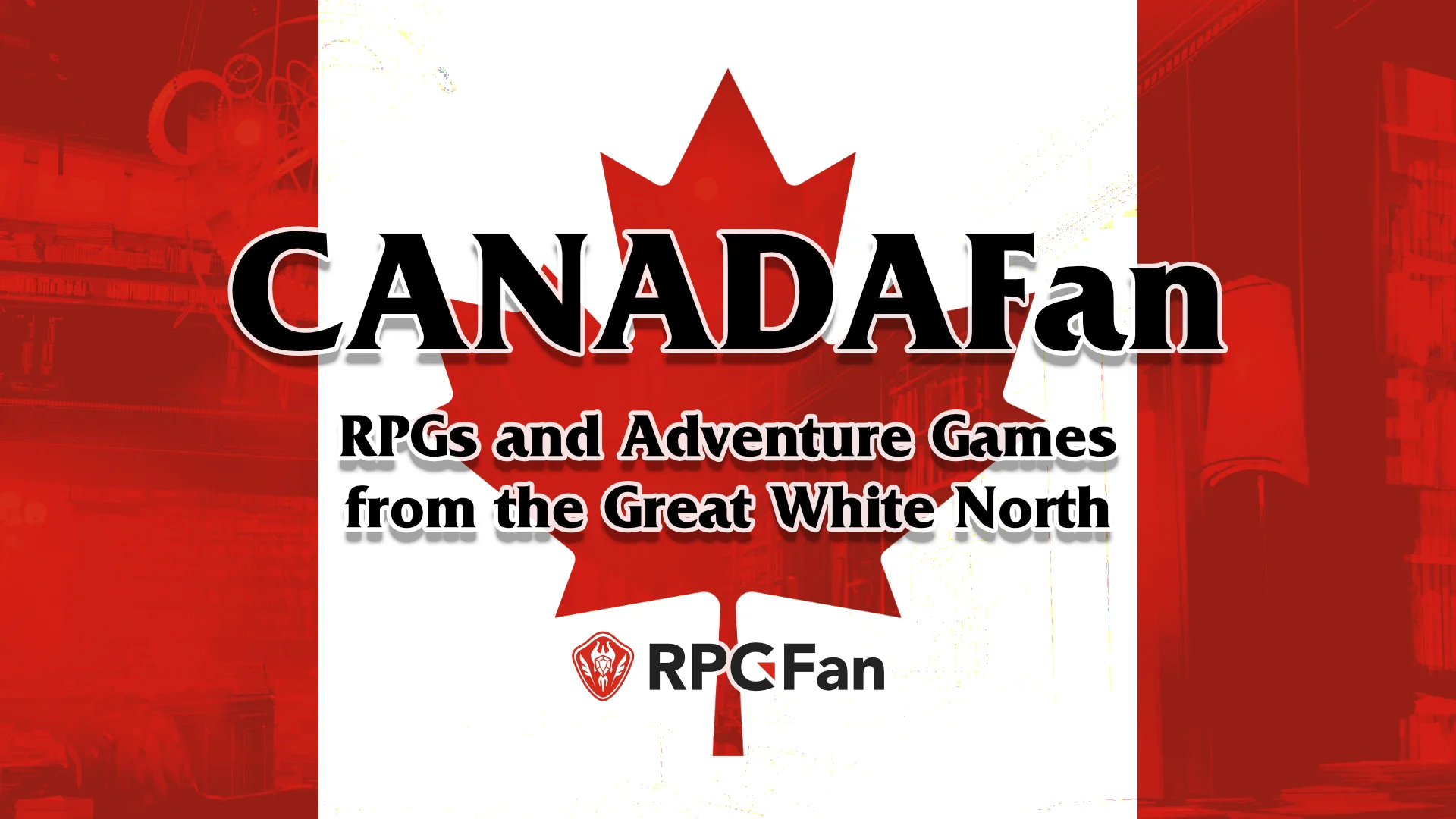“Made in Canada” used to be kind of a joke in the entertainment industry.
Back in the late ’90s, Rick Mercer (one of Canada’s greatest satirists and the host of Talking to Americans) starred in a brilliant Canadian television series, Made in Canada. He played a cutthroat television executive working at a creatively bankrupt Canadian production company. Rather than aiming for art, they churned out cheap knock-off movies and shows for the domestic and American markets. Made in Canada brilliantly skewered the Canadian film industry of the time, but there were some significant parallels with the country’s video game industry of the same period.
Thirty years ago, Canadian developers mainly produced low- to mid-budget licensed shovelware destined for bargain bins and flea markets. But in the early 2000s, things started to change. Edmonton’s BioWare redefined what CRPGs and licensed properties could be with Baldur’s Gate and Star Wars: Knights of the Old Republic. Ubisoft studios in Quebec and Ontario started turning out blockbusters like the Assassin’s Creed and Far Cry series. The Canadian industry evolved. And as it did, so too did homegrown independent developers.
The rise of digital distribution platforms like Steam and Xbox Live Arcade gave Canadian indie devs access to a much wider market, and they took full advantage, creating early indie hits like Fez, To the Moon, and Rogue Legacy. However, while these games remain immensely popular, few people, even Canadians, seem to know their origin. Most gamers simply assume that these commercially and critically successful titles are American. However, with the recent surge in popularity of nationally produced Canadian goods (for reasons that have given me a nervous twitch), I believe this must change.
Canadian developers create world-class games, and “made in Canada” is no longer a joke. The list includes brilliant titles ranging from engrossing retro RPGs like Sea of Stars to side-scrolling boss rushes like Cuphead to deck-building productivity-destroyers like Balatro. Whether these games are developed by passionate Canadian indie devs or primarily Canadian teams at foreign-owned studios, everyone deserves to know about this incredible industry and the talented developers behind it. To paragraph a nationally historic beer commercial: they are Canadian, and Canadians like myself should proudly celebrate everything they contribute to our country and our culture! Happy Canada Day!
Intro by Jono Logan
Jono Logan
Slay the Princess and Scarlet Hollow
Black Tabby Games (Toronto, Ontario)
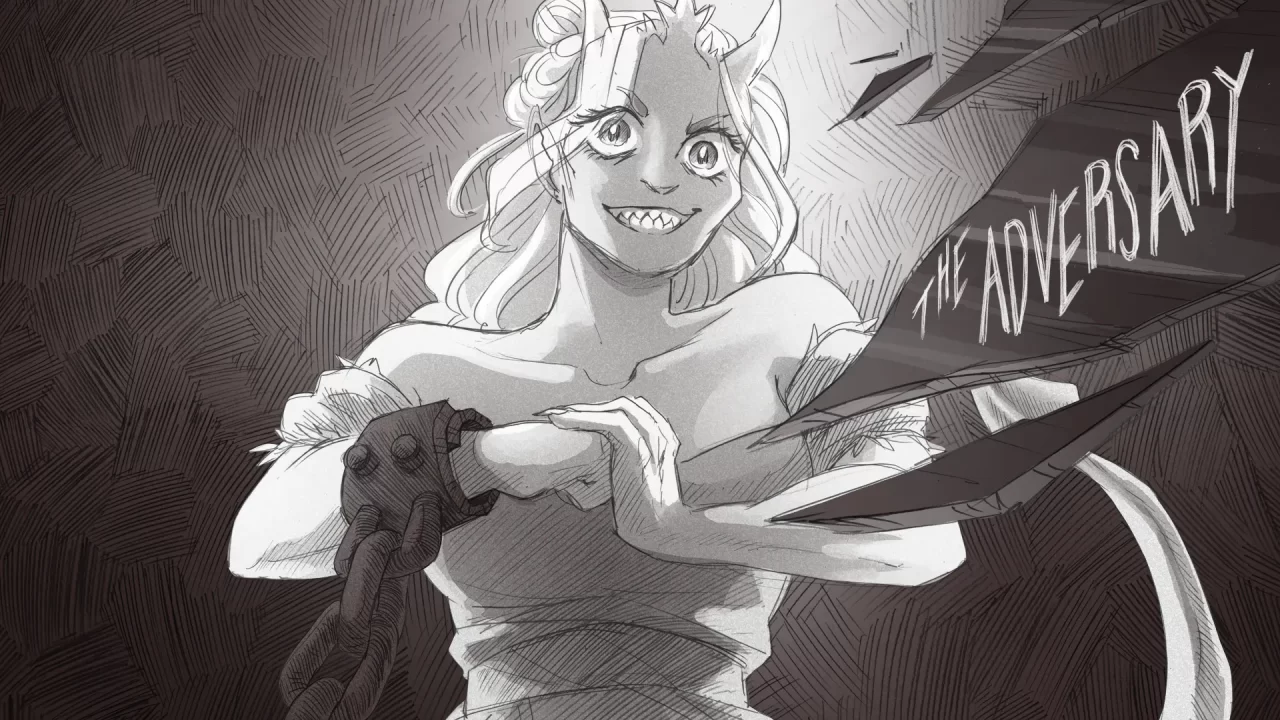
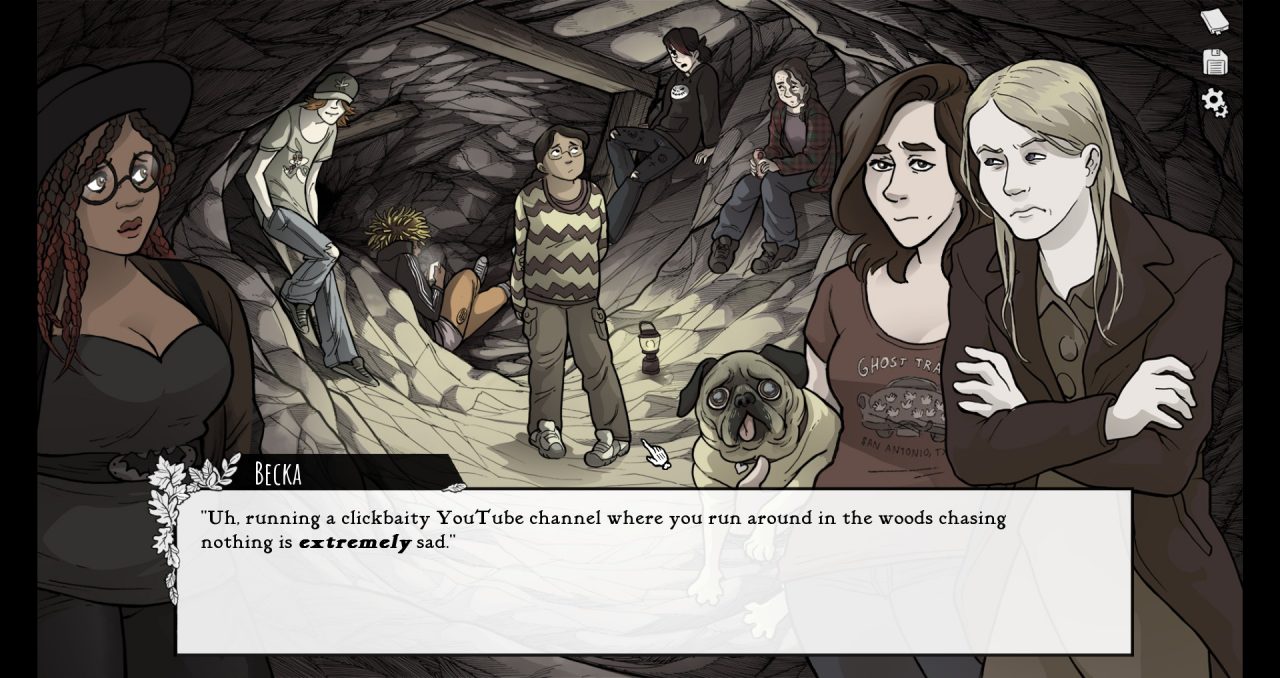
Whenever someone asks me how to get their parents into video games, I respond with, “Visual novels.”
VNs offer similar levels of interactivity to an RPG but without the pesky gameplay mechanics that might scare away newbies. And if you want absolute masters of the genre, check out the work of Black Tabby Games, led by Abby Howard and Tony Howard-Arias. Their first release, the small-town horror/dating sim Scarlet Hollow, is a masterclass in organically branching storytelling. Abby’s stunning art wonderfully realizes the decaying town of Scarlet Hollow, while the writing makes every path feel like it was how the plot was supposed to unfold all along. Though they have only released four of the planned seven episodes thus far, Scarlet Hollow is already one of the most engaging VNs I’ve ever played.
But as excellent as Scarlet Hollow is, most probably know Black Tabby Games for their existential horror visual novel Slay the Princess. Here, they subvert the “save the princess” trope, weaving it into something compelling and horrific. You want to play this with as little context as possible. All you need to know is that there is a princess in a cabin, she’s going to end the world, and you must kill her to stop it. Slay the Princess is a masterpiece, with simultaneously beautiful and grotesque visuals, an immersive story, and brilliant voice work. I’m not sure I would make it my mom’s first VN, but if I ease her into the genre with Scarlet Hollow first… Hmmm, that might actually work!
Rogue Legacy & Rogue Legacy 2
Cellar Door Games (Toronto, Ontario)
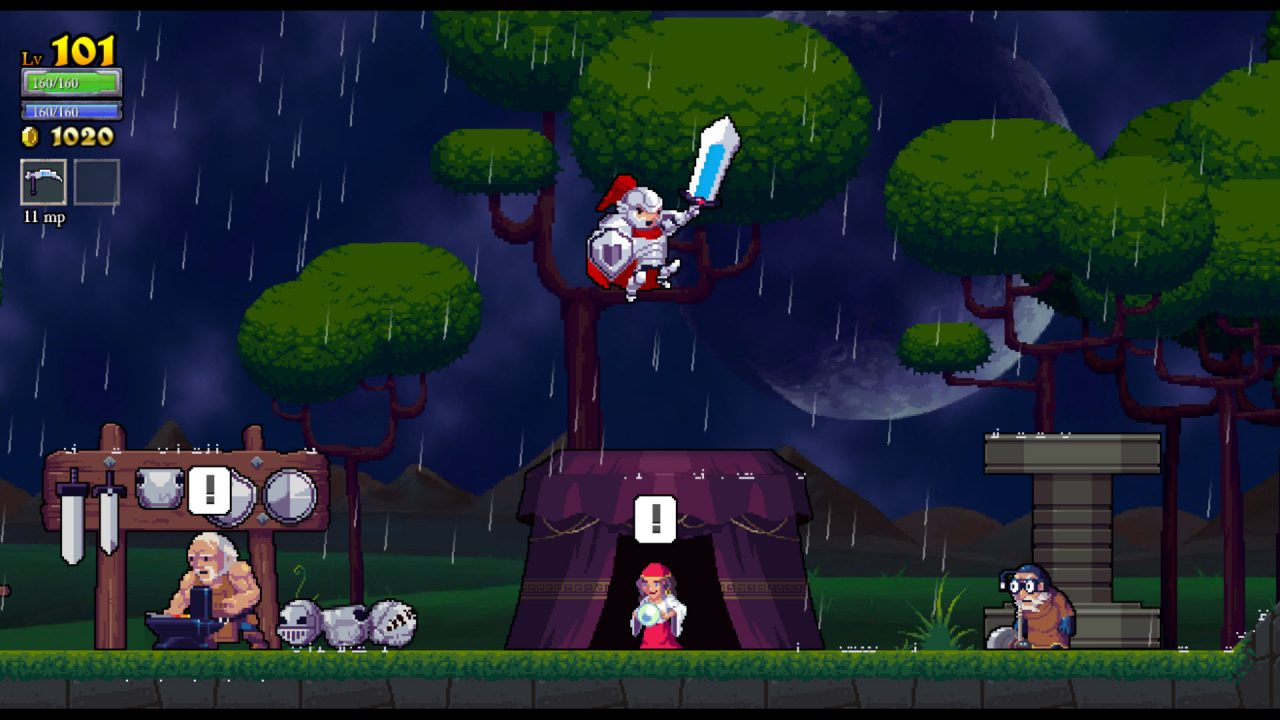
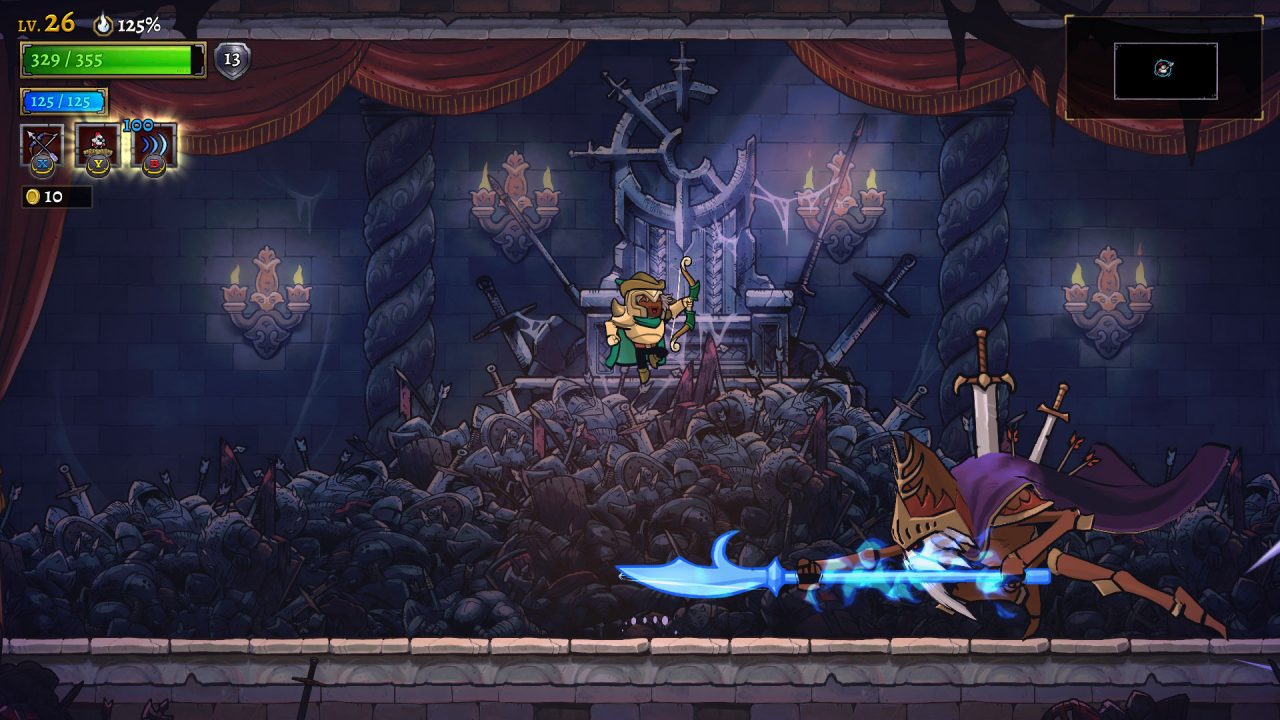
In the late 2000s, indie roguelikes were having a moment.
Inspired by the 1980s dungeon crawler Rogue, hits like Spelunky and The Binding of Isaac were purely RNG and skill-based, with procedurally generated levels and only one life per run. Then in 2013, Cellar Door Games released Rogue Legacy, a Metroidvania that transformed the hardcore mechanics of the rogue-like into a more approachable, yet still unforgiving, genre called the roguelite. You still only get a single life per run, but persistent upgrades now carry forward after every death. Rogue Legacy was a big hit, and its roguelite progression inspired many other popular games, including Darkest Dungeon (also Canadian), Enter the Gungeon, and Hades. Cellar Door Games returned to their first hit with Rogue Legacy 2 in 2022, refining the gameplay and incorporating much of the roguelite innovation from the last 10 years. If you’re looking for excellent Metroidvanias, charming platformers, or approachable challenges, both Rogue Legacy games are hard to beat!
Not in Our Coverage Bonus: Balatro
LocalThunk (Canada)
With the release of Slay the Spire in 2017, deckbuilders started gaining popularity, eventually achieving mainstream success. However, few deckbuilders are as “pure” as Balatro.
Canadian developer LocalThunk boiled down the genre to its absolute essentials by using a common deck of playing cards. As you progress by playing poker hands, the required score to the next blind increases, forcing you to keep up by purchasing jokers that add to or multiply your point total. It’s deceptively simple with deep levels of strategy that emerge as you unlock more jokers, making for a supremely accessible game that can easily consume several hours of your day before you realize it. Balatro stands as one of the biggest indie success stories in recent history, and judging by the number of concurrent players on Steam in 2025, it will likely remain a deadly time-killer for years to come!
Matt Wardell
Mass Effect Series
BioWare (Edmonton, Alberta)
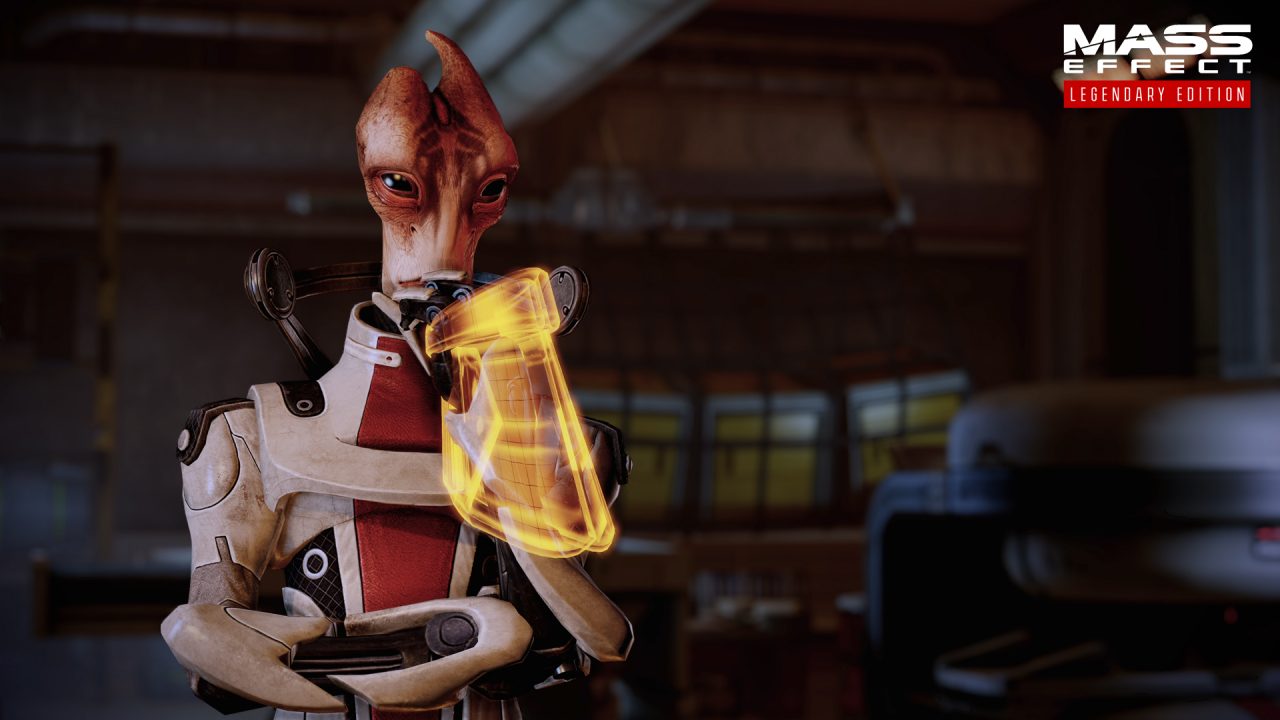
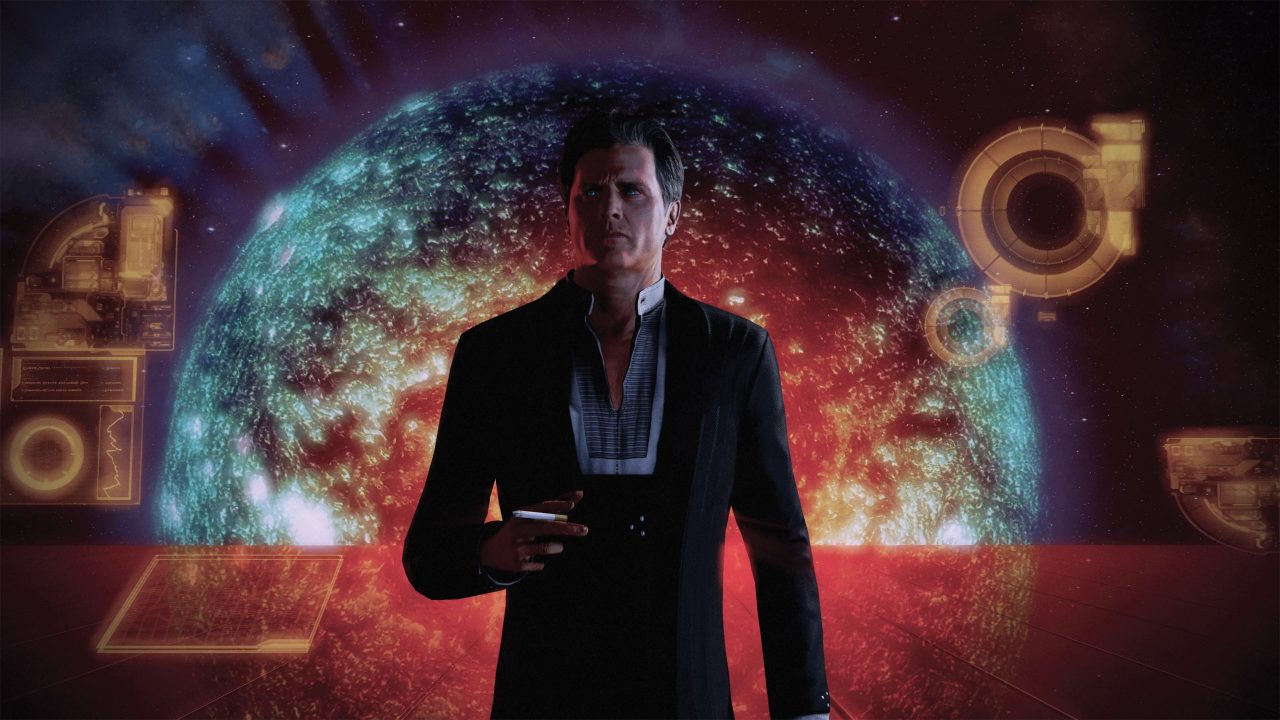
Perhaps no game or series from Canada had such a meteoric impact on the world as the Mass Effect trilogy. You’re just as likely to find one or all three of them on a list of “greatest ever RPGs” as you are to see them on a “greatest games of all time” list, and with good reason. BioWare already proved their sci-fi chops with 2003’s Star Wars: Knights of the Old Republic, and here they build upon that to make what I would call an even more compelling and cohesive universe. The worlds of Mass Effect feel richly detailed, filled with fascinating and complexly intermingled alien species, and the constant galaxy-level threat to that wonderful universe absolutely propels players to see the ongoing story through from the first to the third game. Talking to crewmates like Garrus, Tali, Liara, and Wrex feels as engrossing as the evolving blend of third-person shooting and RPG space-magic commands. And from the way Vancouver is the seat of humanity on Earth in Mass Effect, and how the series touts diversity as the Normandy crew’s biggest strength, the trilogy’s Canadian DNA is thoroughly present.
Not in Our Coverage Bonus: Scott Pilgrim vs. the World: The Game
Ubisoft Montreal (Montreal, Quebec)
Scott Pilgrim may be just a belt-scrolling beat ’em up, but hey, you can level up your characters and learn new abilities! This game, originally released in 2010 but re-released due to popular demand in 2021, perfectly encapsulates the vibe of the beloved Canadian comic, from its gorgeous pixel-art renditions of the wintry streets, buses, clubs, and psychedelic subspace dimensions of Toronto to its incredibly catchy soundtrack from the chiptune band Anamanaguchi. Scott Pilgrim may also be the only beat ’em up to have defeated enemies explode into accurate Canadian coins—oh my god, is that a toonie?! I struggle to think of a game that more closely captures the mundanity and the extraordinariness of a Torontonian geek’s life.
Aleks Franiczek
Tunic
Isometricorp Games (Halifax, Nova Scotia)
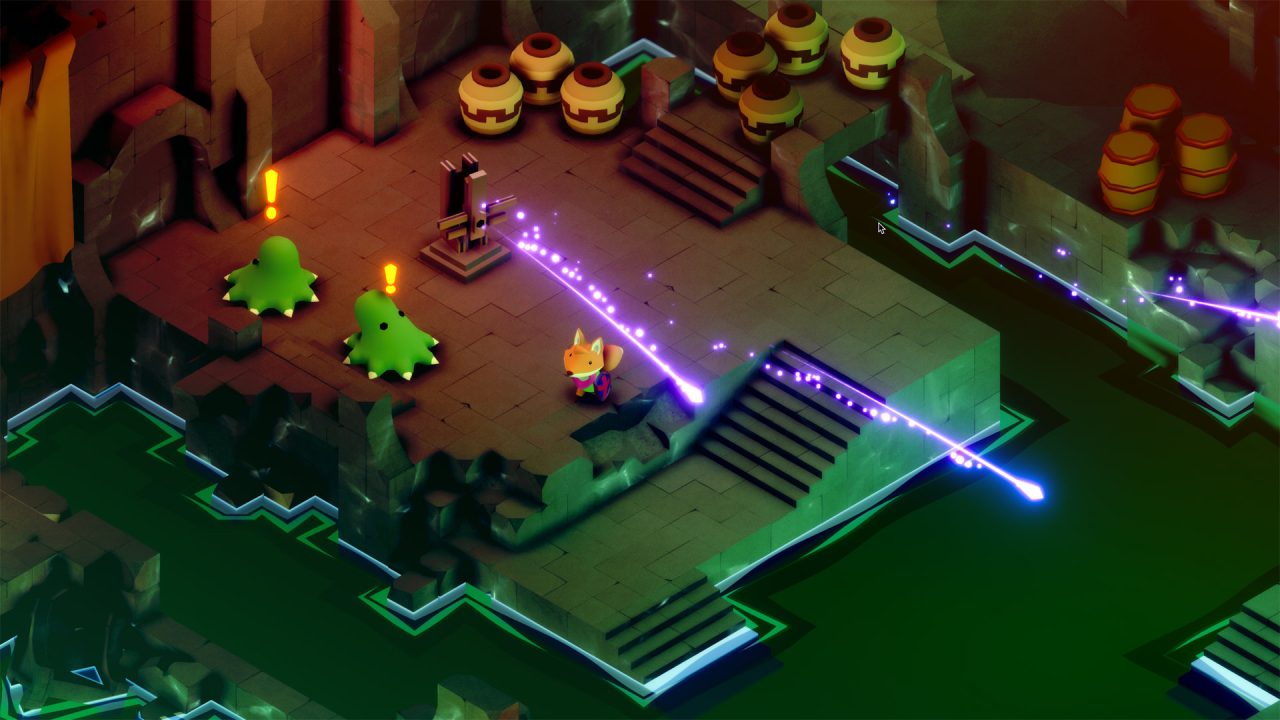
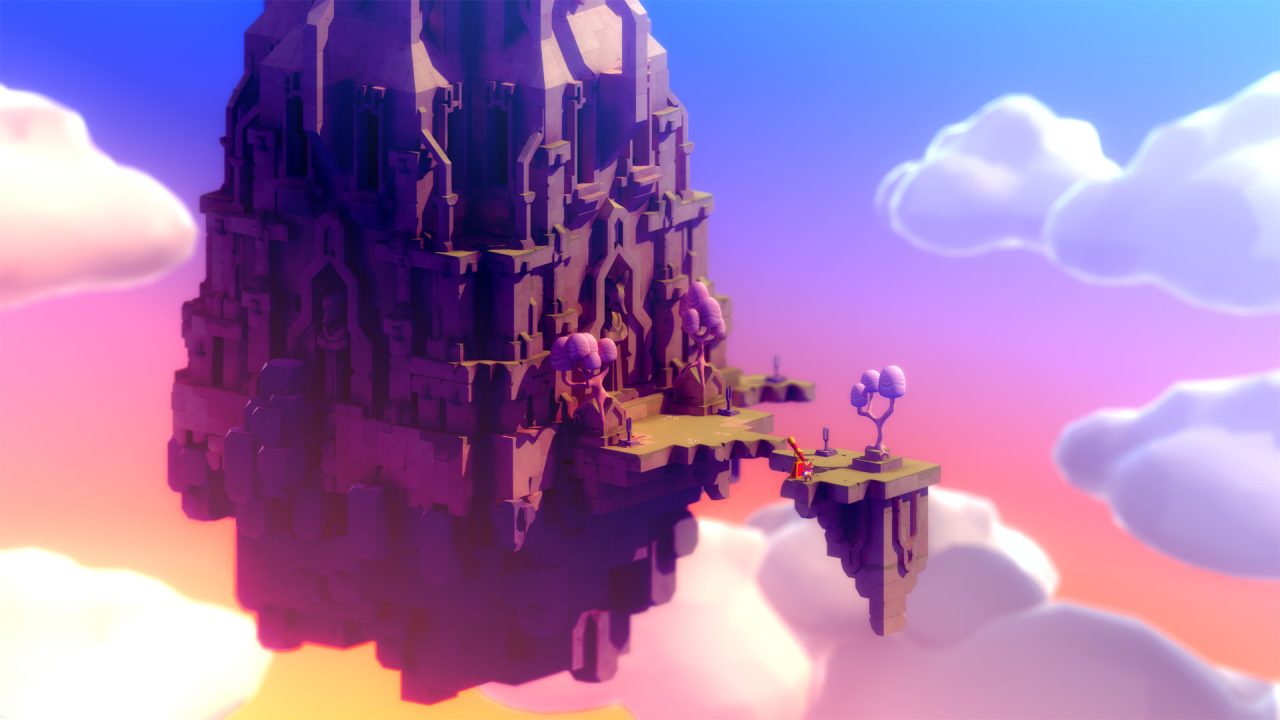
Apart from being a phenomenally designed Zelda-like, Tunic goes the extra mile in how it subverts standard communication to its player. The game world’s text uses an illegible alphabet that you can slowly parse by collecting fragments of a diegetic game manual scattered throughout its environments. As you discover these pages—sometimes in your path and often delightfully hidden—you learn about new mechanics, lore, and secrets during the course of gameplay. Tunic rewards curiosity and ingenuity in its exploration, with the isometric perspective working to create puzzles for the eyes around every area. It blends this all with challenging Souls-style combat that demands smart spacing and precise dodging. No single enemy encounter or screen-sized portion of the map feels wasted. Tunic’s greatest achievement is its density in terms of design, depth, and unravelling obtuseness.
Chicory: A Colorful Tale
Wishes Unlimited Games (Vancouver, British Columbia)
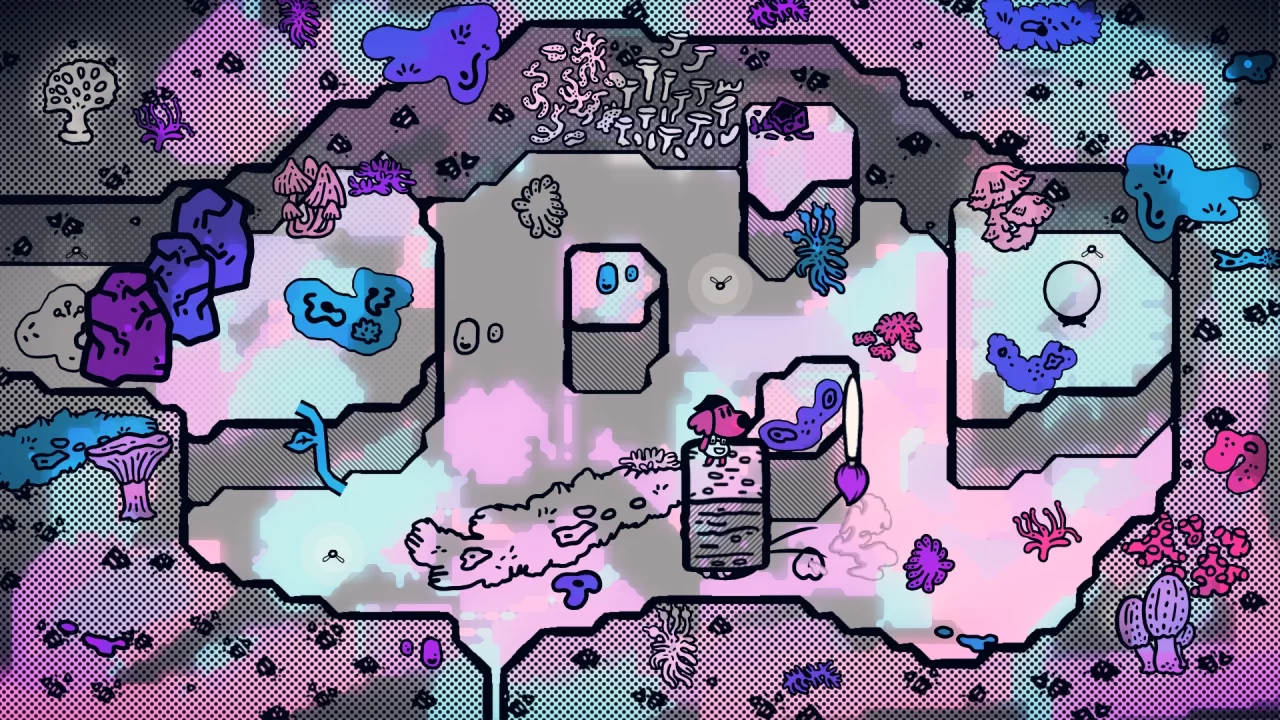
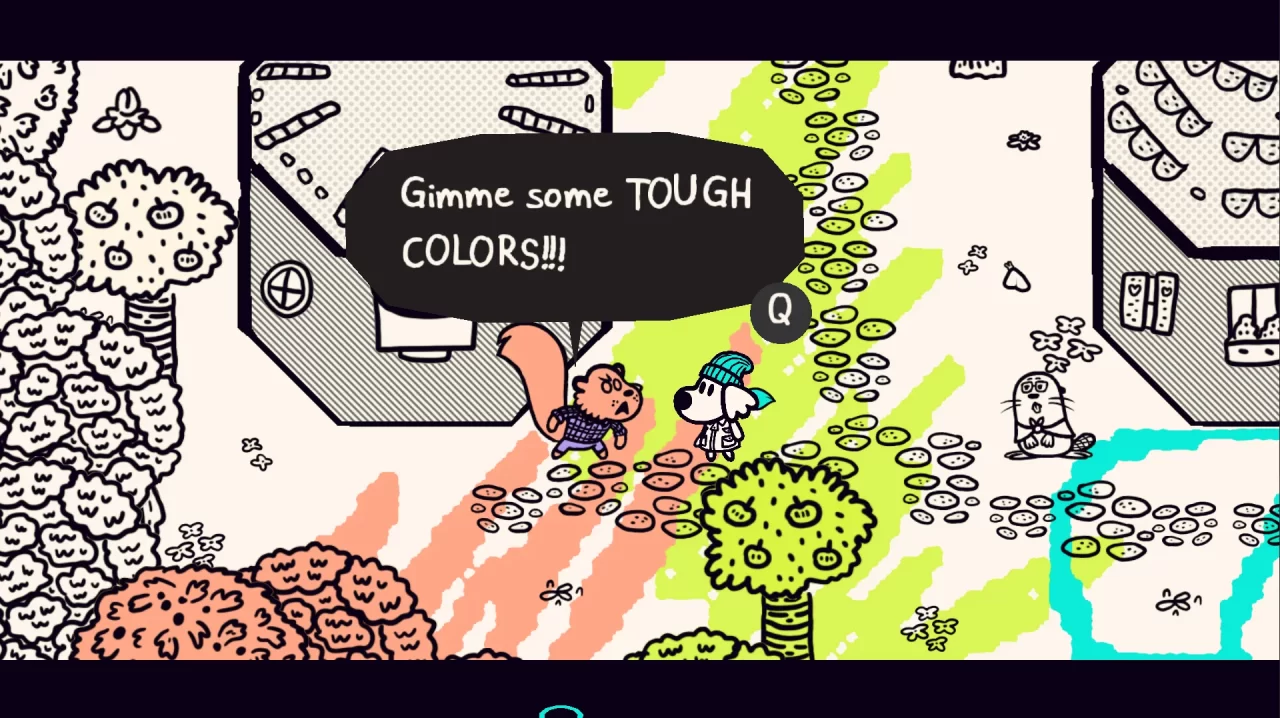
Don’t be fooled by the lack of U in “colourful”—Chicory is a product of the Great White North. Developer Greg Lobanov’s indie masterpiece blends Zelda-style world design with colouring book mechanics and an emotionally complex narrative that explores artistic creativity, self-doubt, and legacy in a unique and authentic manner. We play as a cute little dog who gleefully takes up the heavy task of bringing colour to the game’s world since Chicory, the true wielder of the magic Brush, has become reclusive with a severe bout of depression. As someone with no talent for the fine arts, I was a terrible wielder. But I still had fun trying, and isn’t that the point? Or was I just a fraud embarrassing myself? To bolster its northern credentials, Chicory features yet another remarkable soundtrack from Canadian composer Lena Raine (of Celeste fame), with music that expresses the stark contrasts between its protagonist’s naïve positivity and the visceral, depressive darkness spreading through the land.
Baldur’s Gate and Baldur’s Gate II: Shadows of Amn
BioWare (Edmonton, Alberta)
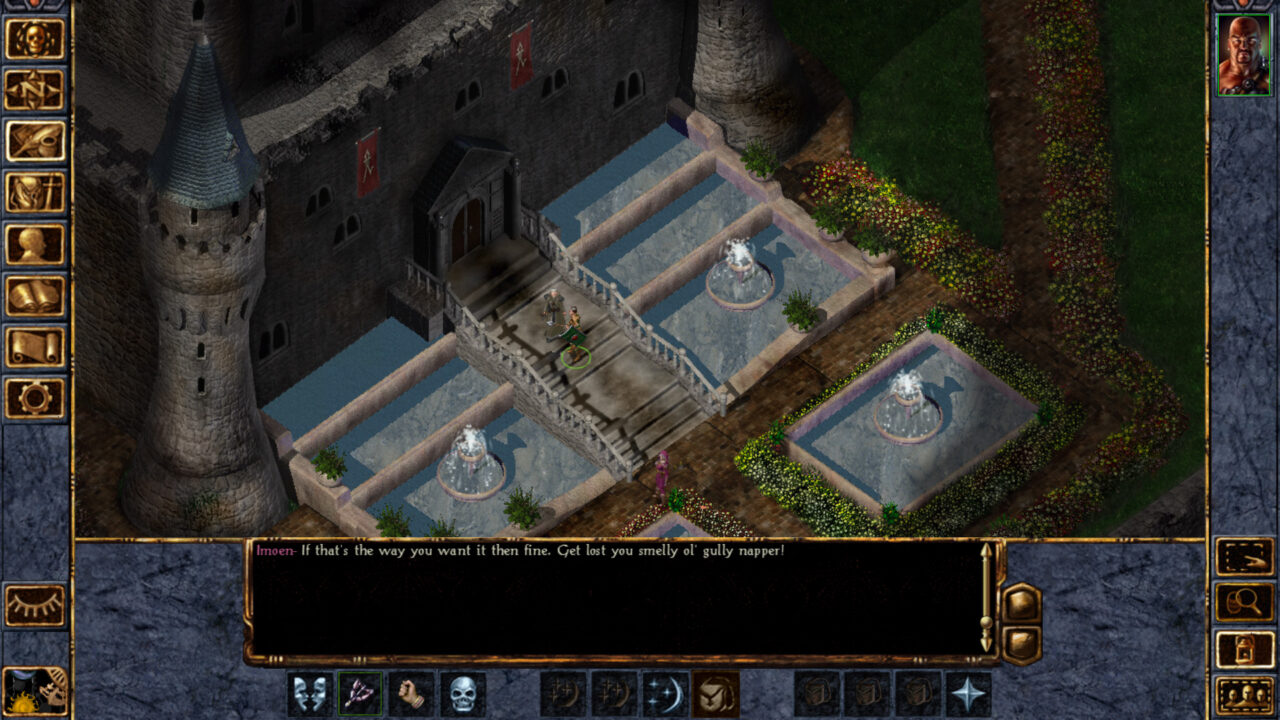
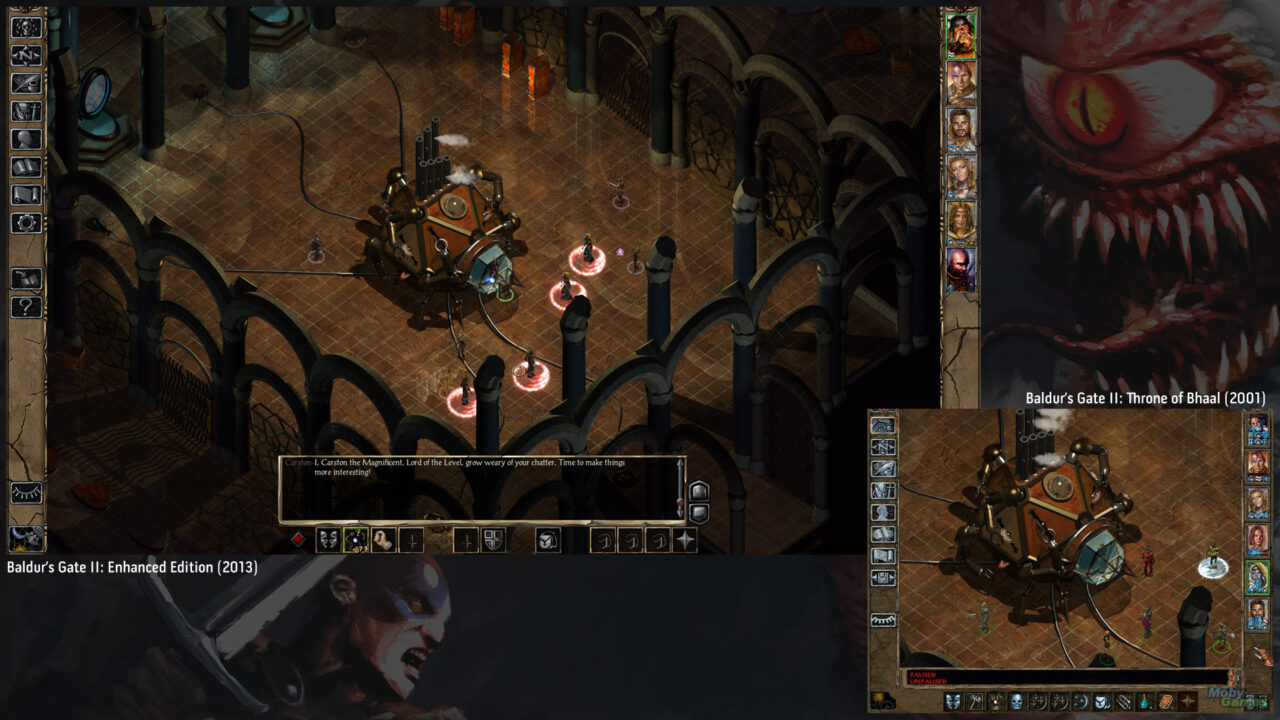
BioWare was once just a humble studio formed by three medical school graduates from the University of Alberta. For their second game, they were granted access to the Dungeons & Dragons license that their publisher, Interplay, had secured. So, they made Baldur’s Gate, the most ambitious and successful videogame adaptation of the tabletop fantasy property at the time. There’s something about the freedom and open-ended sense of discovery to the original Baldur’s Gate that still feels fresh in spite of its clunky parts. This is because BioWare wouldn’t set the familiar template for western RPGs until its sequel.
For all its strengths, Baldur’s Gate lacked character depth. Baldur’s Gate II’s writing team were eyeing what their Japanese counterparts had achieved with games like Final Fantasy VII and knew they had to step their game up. The result is undoubtedly one of the most influential videogames ever made. Sure, Baldur’s Gate II is a little dense and broken (I did say it influenced future WPRGs, didn’t I?) Yet the expressiveness of its dialogue trees, the creative possibility of its character building, and the colourful cast of recruitable (and sometimes romanceable) characters united the core appeals of RPGs. It successfully merged the sense of agency WRPGs prioritized with the character-driven storytelling JRPGs excelled at, bridging a cultural genre gap that has only closed since. Both games have since received Enhanced Editions by another Canadian developer, Beamdog, which was formed by ex-BioWare employees after the EA takeover. The remasters are the most readily available versions of the games, include additional content, and even make for solid console experiences.
Patrick Gann
To the Moon Series
Freebird Games (Markham, Ontario)
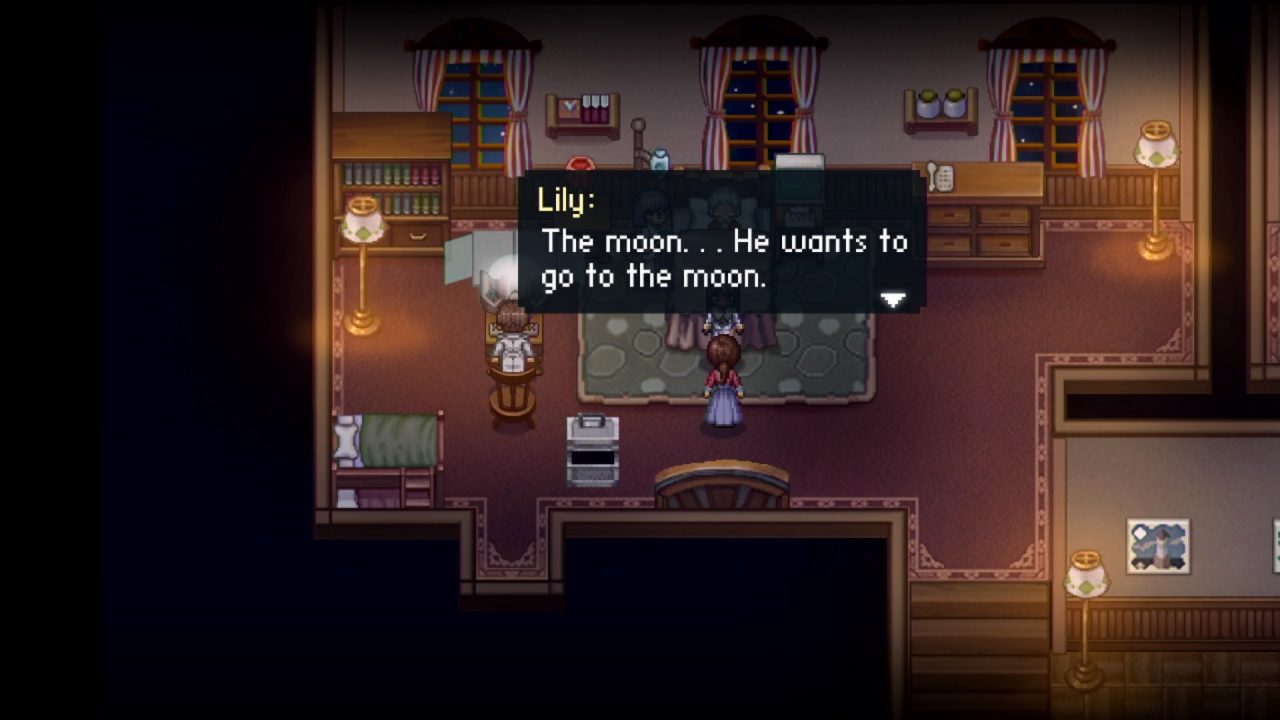
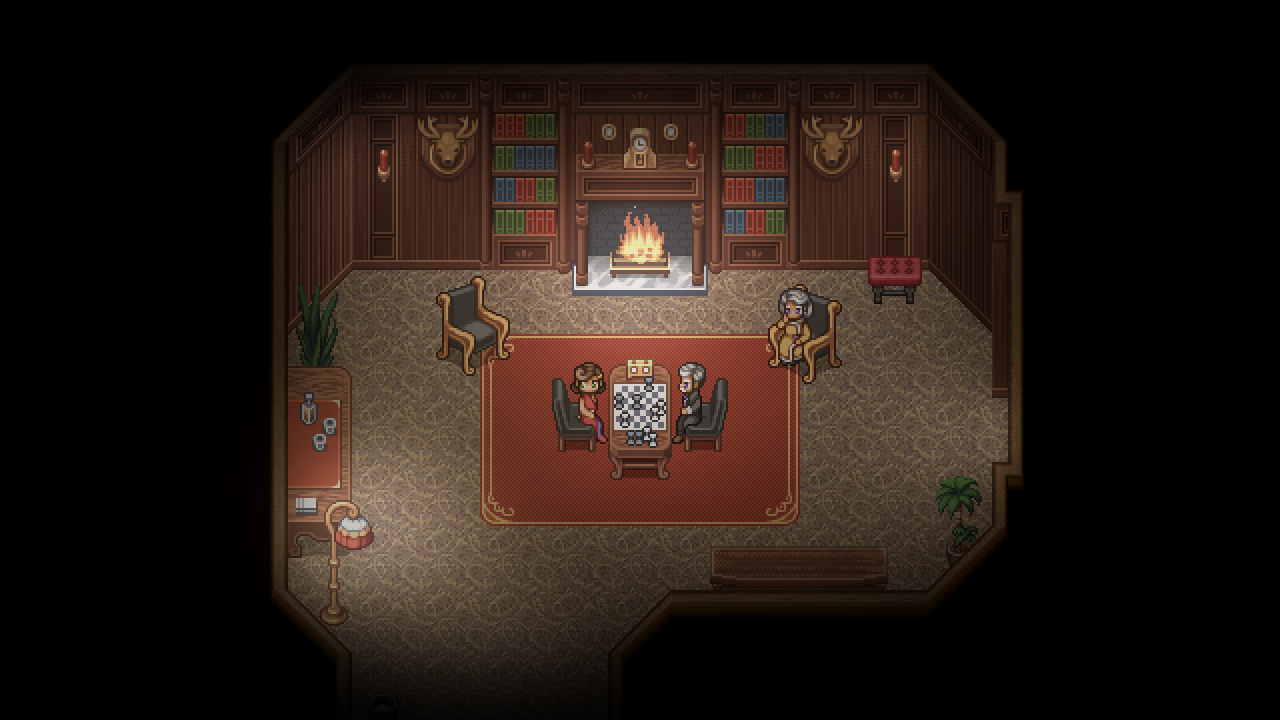
Kan “Reives” Gao, head of the indie studio Freebird Games, has been meticulously crafting some of the most heartfelt stories in gaming. His breakout hit To the Moon first released in 2011, showed that games developed in RPG Maker could not only be great, but could ignore the mechanics of combat entirely. Since that time, Gao has released multiple sequels and side stories in the To the Moon universe: Finding Paradise and Impostor Factory are main entries in the series, while A Bird Story and Just a To the Moon Beach Episode flesh out specific character stories. The interactions between Dr. Neil Watts and Dr. Eva Rosalene, told through both dialogue and the diorama-esque set pieces in each game, run the gamut from silly to sorrowful.
Gao also writes the lion’s share of the music to each of his games, often in the form of solo piano or piano with synth string ensemble. However, each game has at least one powerful vocal ballad. In the last two titles in the series, Gao collaborated with another Canadian (vocalist Pealeaf) for the songs “Great Wide Unknown” (Impostor Factory) and “World in a Memory” (Beach Episode). Anyone unfamiliar with To the Moon as a franchise would do well to listen to these two songs. If you like what you hear, you know what to do next.
Not in Our Coverage Bonus: Celeste (Music) – Lena Raine
Maddy Makes Games (Toronto, Ontario)
Well, it’s not an RPG by any means, but it’s freaking Celeste, so if we’re talking Canadian-made games, then I’m talking about Celeste! Developer Maddy Thorson created one of the best platformers made in the last ten years, mixing an incredible aesthetic with some of the most engaging and challenging movement since Super Meat Boy. To top it off, Celeste’s soundtrack is composed by another Canadian luminary, Lena Raine. Raine’s Celeste soundtrack is rightfully celebrated for its energy, its brightness, and its incredible range. If you haven’t honed in on the chanting vocals in the track “Confronting Myself,” you are missing out!
Tina Olah
Boyfriend Dungeon
Kitfox Games (Montreal, Quebec)
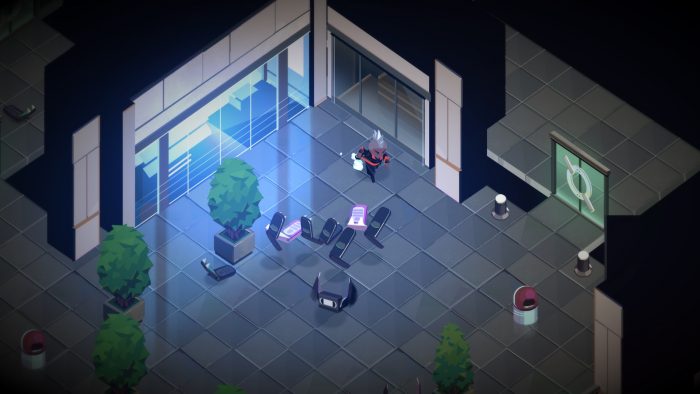
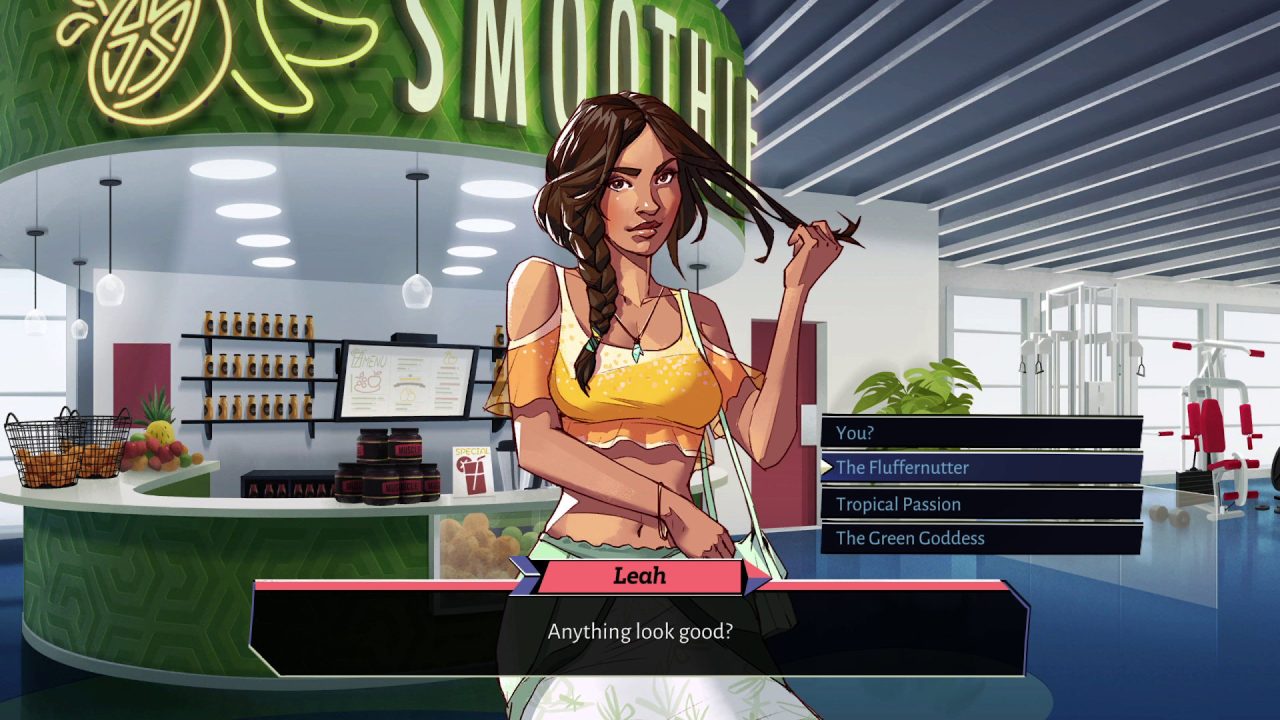
Through the magic of video games, we can date elven warriors, dreamy dads, scholarly pigeons, and even weapons in human form. This last category makes up the cast of Boyfriend Dungeon, a wonderful mix of dating sim and rogue-lite dungeon crawler from Montreal’s Kitfox Games. The game is a blast from start to finish, with addictive dungeon action and several enticing romance options. Wield your favorite weapons against hordes of baddies, then go on dates with their human forms in wonderfully illustrated visual novel scenes. You can even hang out with a cool orange kitty that transforms into a pair of brass knuckles! Protip: I do not recommend trying to use your actual cat as a weapon. Whether or not the unusual premise draws your attention, anyone with the slightest interest in dating sims or breezy isometric action should give Boyfriend Dungeon a go; it’s just that fun!
Not in Our Coverage Bonus: A Short Hike
Adam Robinson-Yu (Toronto, Ontario)
This is a story about a small blue bird looking for cell phone reception and finding friendship. Featuring a tiny open world populated by cute animal characters in need of your assistance, A Short Hike is a lovely little game that is easy to finish in a weekend. Take your time and enjoy Hawk Peak Provincial Park’s beautiful autumn foliage, icy peaks, relaxing fishing spots, and ample camping facilities. Anyone who has spent time in the Canadian wilderness will be familiar with these sights!
Bite-sized games are often some of the sweetest and most memorable experiences, and A Short Hike definitely delivers. As an added bonus, you won’t have to deal with the hassles of real-world hikes, like getting swarmed by mosquitos or sliding into animal poop. Fun times!
Jimmy Turner
Assassin’s Creed Origins & Assassin’s Creed Odyssey
Ubisoft Montreal and Ubisoft Quebec (Quebec)
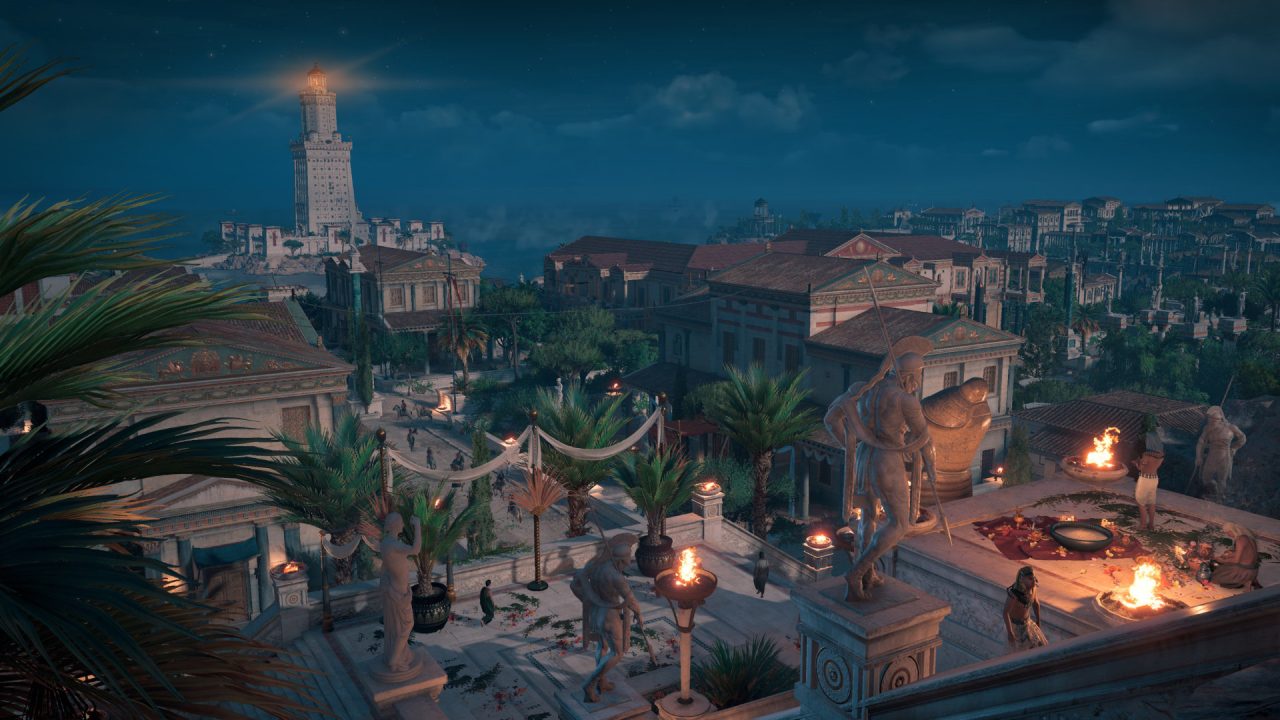
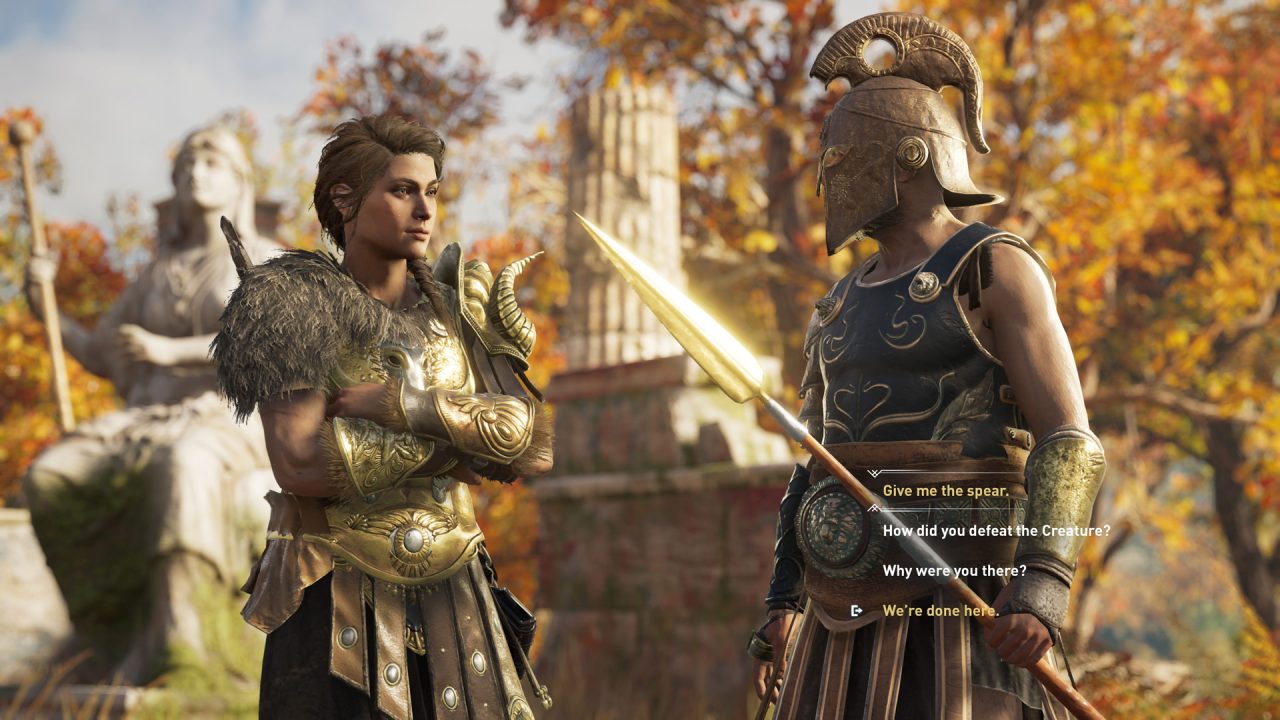
I have a long history with the Assassin’s Creed series. After a two-year hiatus, the franchise was one of the big reasons I got back into gaming in 2007. As much as I loved most of the series, by 2017, it was apparent that the old formula was growing stale. How did Ubisoft Montreal confront the issue? Those amazing French Canadians turned a tired open-world, stealth action series into a full-on RPG.
Assassin’s Creed Origins was the first in the series to take the role-playing leap, exploring ancient Egypt as Bayek of Siwa. It features a new modern-day protagonist in Layla Hassan, an Abstergo researcher looking for answers and a way into the Animus Project. Where Origins laid a foundation for RPG systems, their fellow Quebecers improved upon those systems with Assassin’s Creed Odyssey. The oldest game in the series timeline, Odyssey takes players to ancient Greece and follows a Spartan exile. Players can select a male or female main character in a story that includes the formation of the Brotherhood’s predecessor. How fitting that a province with such a passion for history—Quebec’s motto is “Je me souviens,” or “I remember” for the non-Francophones—brought us two epic games inspired by historical settings.
Deus Ex: Human Revolution & Deus Ex: Mankind Divided
Eidos Montreal (Montreal, Quebec)
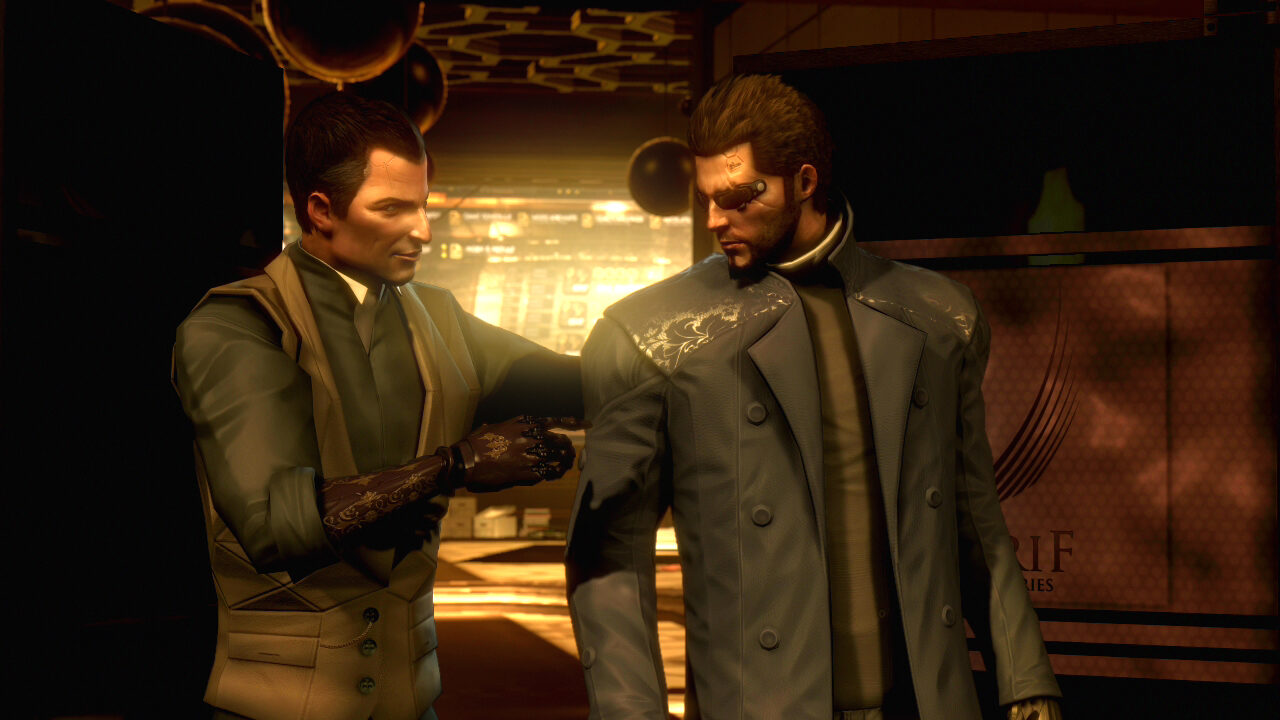
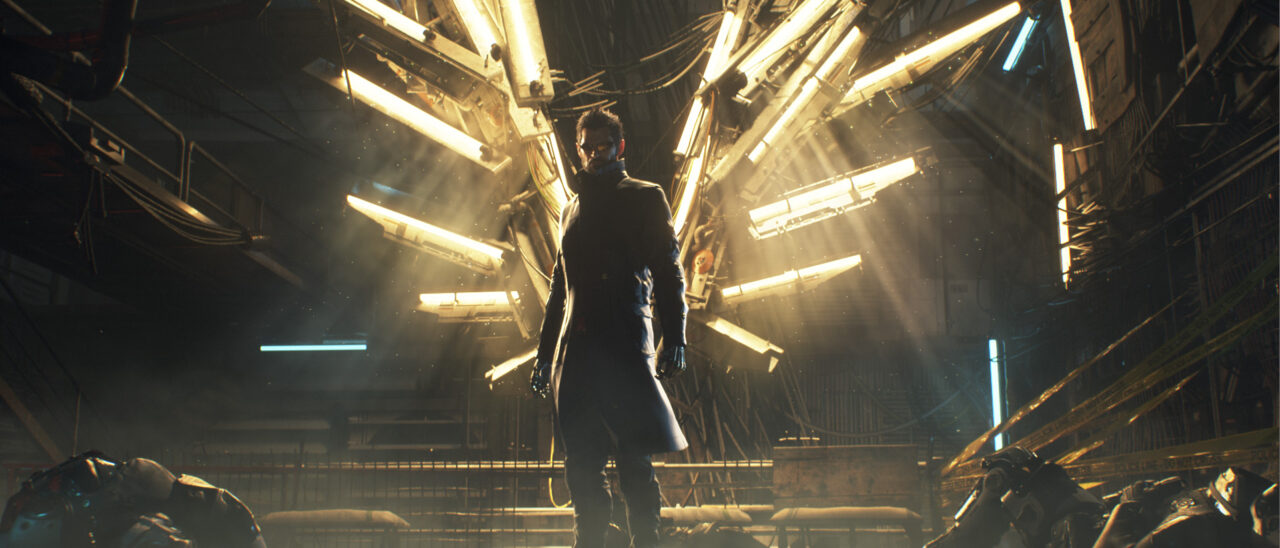
The Deus Ex franchise began on PC, but for myself and my fellow console gamers, our introduction to the series came with Deus Ex: Human Revolution. This is also the first one developed by Eidos Montreal. Human Revolution generally follows the formula that made the original a hit. First-person shooting, choices that matter, a cyberpunk setting, and a mix of stealth and action combat combine marvelously.
The studio followed up Human Revolution with Deus Ex: Mankind Divided. Though the sequel was slightly less well received than its predecessor, it has aged wonderfully. In fact, both games still hold up well to modern standards, and the subject matter becomes more relevant and concerning with each passing day. The series’ influence exists in modern games like Cyberpunk 2077, but unfortunately we won’t be seeing a new Deus Ex anytime soon. After the Embracer Group acquired Eidos Montreal, a new game in the series was reportedly in development for two years before being cancelled. Oh, the irony that the series has fallen victim to the corporate machinations the games rail against. The Eidos team did manage to put out Marvel’s Guardians of the Galaxy in the meantime, a fun action-adventure that does a great job with the source material.
Audra Bowling
Dragon Age Series
BioWare (Edmonton, Alberta)
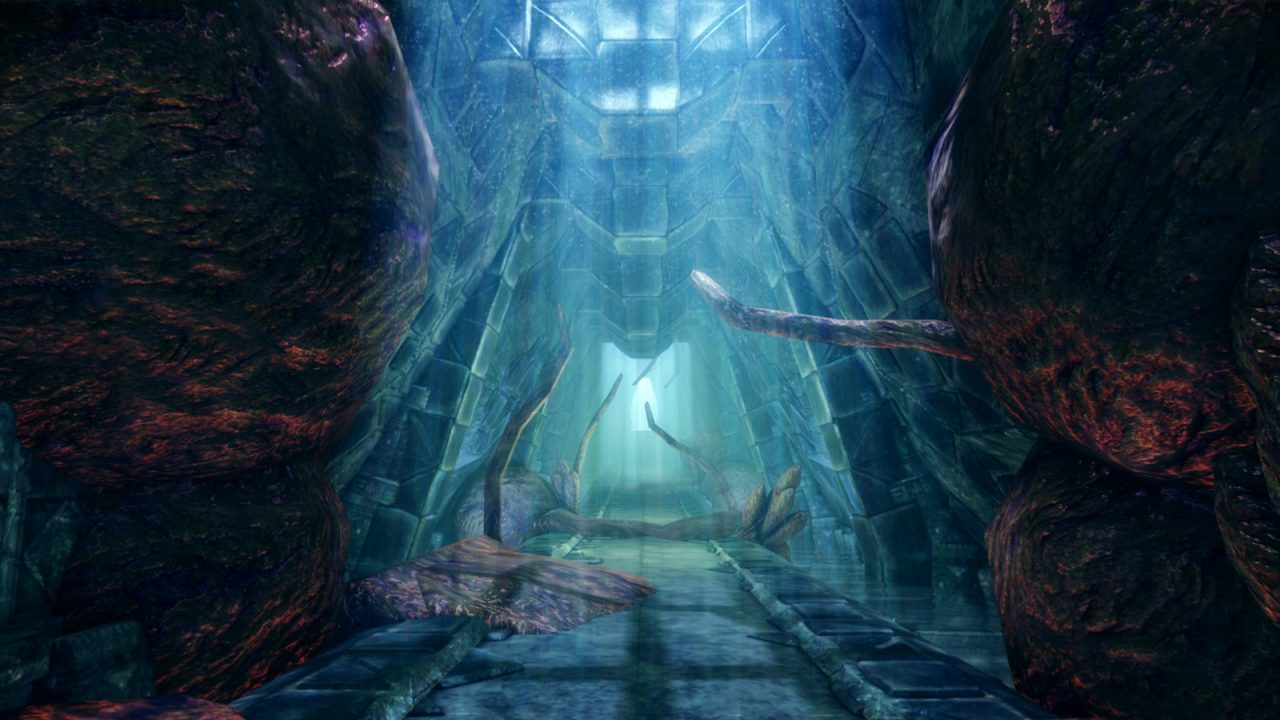
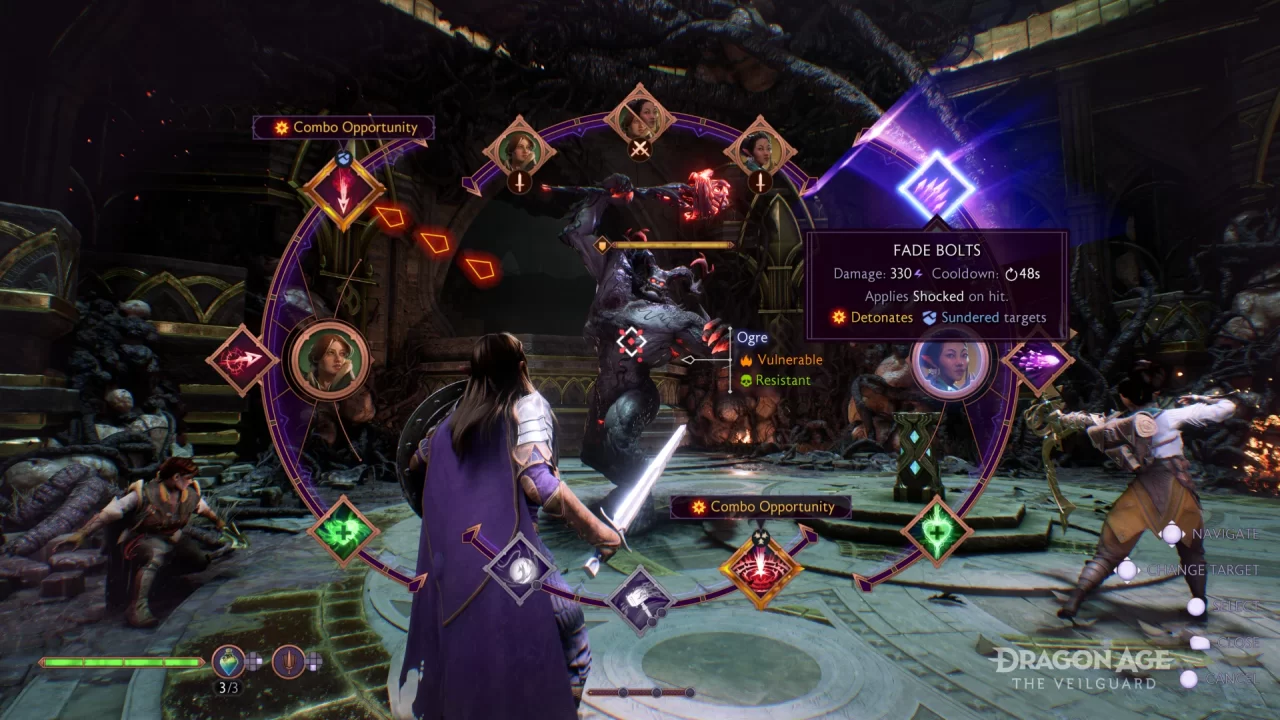
Canadian-based developer BioWare is a powerhouse when it comes to memorable RPGs, with the epic dark fantasy series Dragon Age garnering a lot of praise. Ever since Dragon Age: Origins introduced players to the world of Thedas, players have met and formed bonds with wonderful characters. I remember my first tentative forays into Dragon Age with wide-eyed wonder, still a newbie to choice-heavy WRPG narratives. Agonizing over my initial Origins playthrough (City Elf Origin if you’re curious!) and subsequent decisions resulted in playing well into the night for days. I played as Hawke in two different Dragon Age II playthroughs, gaining a newfound appreciation for their adventures in Kirkwall. Dragon Age: Inquisition had more of an open-world vibe, but I also played it twice, finding something new to appreciate each time. Dragon Age: The Veilguard has quite the vitriolic discourse surrounding it, but I found it an admirable attempt to move the series forward despite the obvious troubles during development. There hasn’t been a Dragon Age game I’ve truly disliked, as all have their own strengths and weaknesses. BioWare’s forays into Thedas lore can be rather experimental, but I’ll book return trips to the series just to hang out with its all-too-human and memorable characters.
Lil’ Guardsman
Hilltop Studios (Toronto, Ontario)
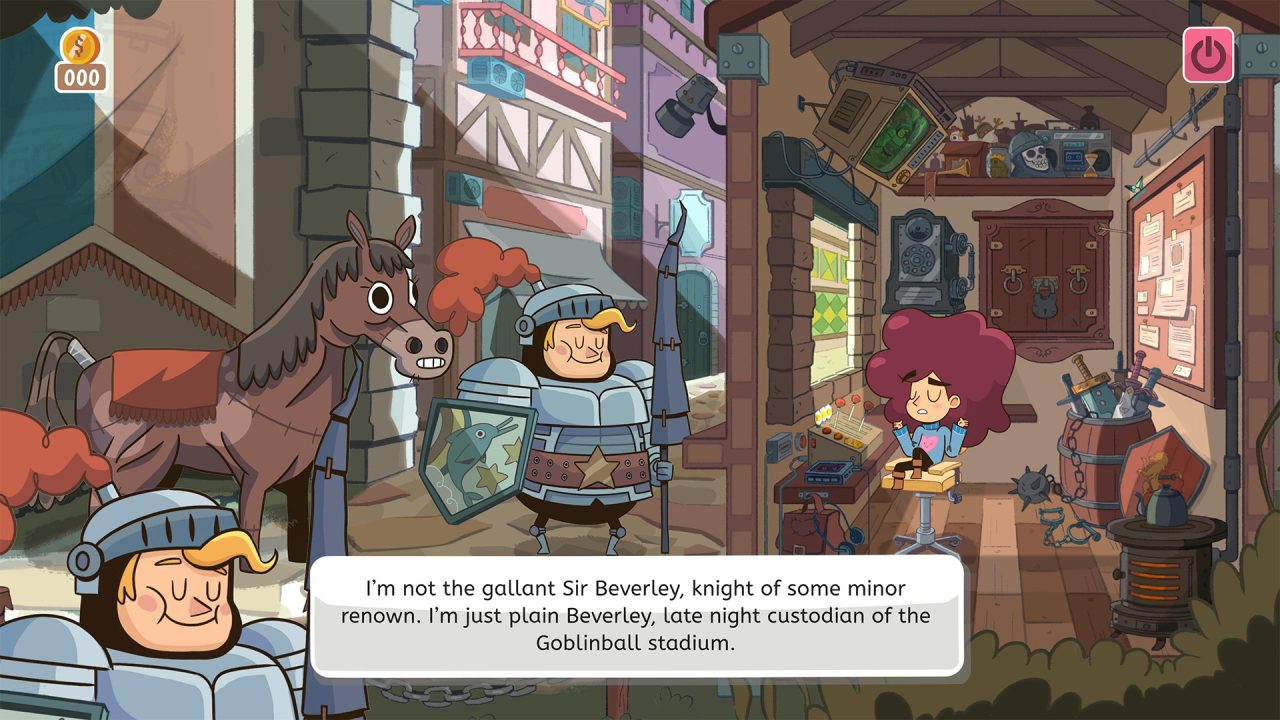
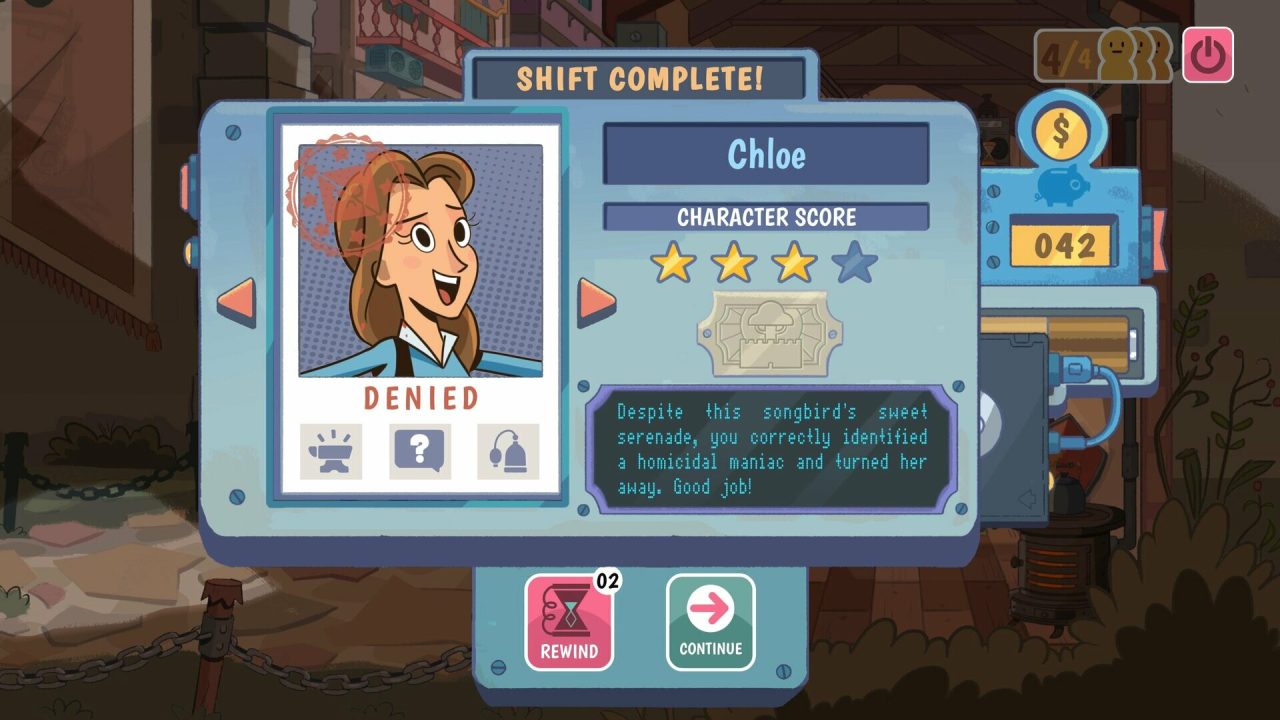
Lil’ Guardsman is a Graphic Adventure that I initially picked up without much knowledge. Twelve-year-old Lil’s work as a guardsman is rife with intrigue and plenty of real danger, plus societal commentary under a veneer of truly well-written humor and a whole lot of (sometimes surprising) heart. To say I was charmed by Canadian developer Hilltop Studios’ fantasy adventure is an understatement. I chuckled throughout my entire playthrough, the game’s stellar writing and colorful cartoon character designs making Lil’ Guardsman memorable. The voice acting and overall high quality sound direction is also notable. Also, I love how decisions regarding who you allow to enter Lil’s city have lasting narrative impact. Lil’ Guardsman is clever and creative in all the best ways imaginable.
SEASON: A letter to the future
Scavengers Studio (Montreal, Quebec)
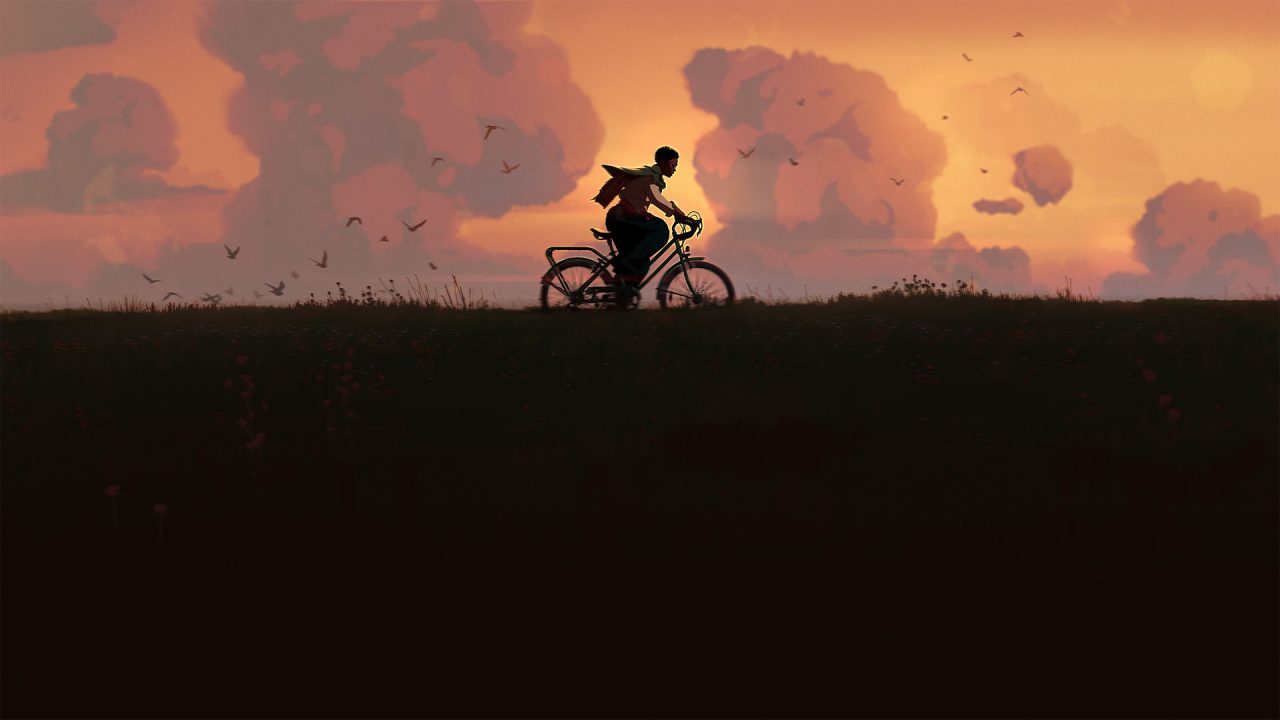
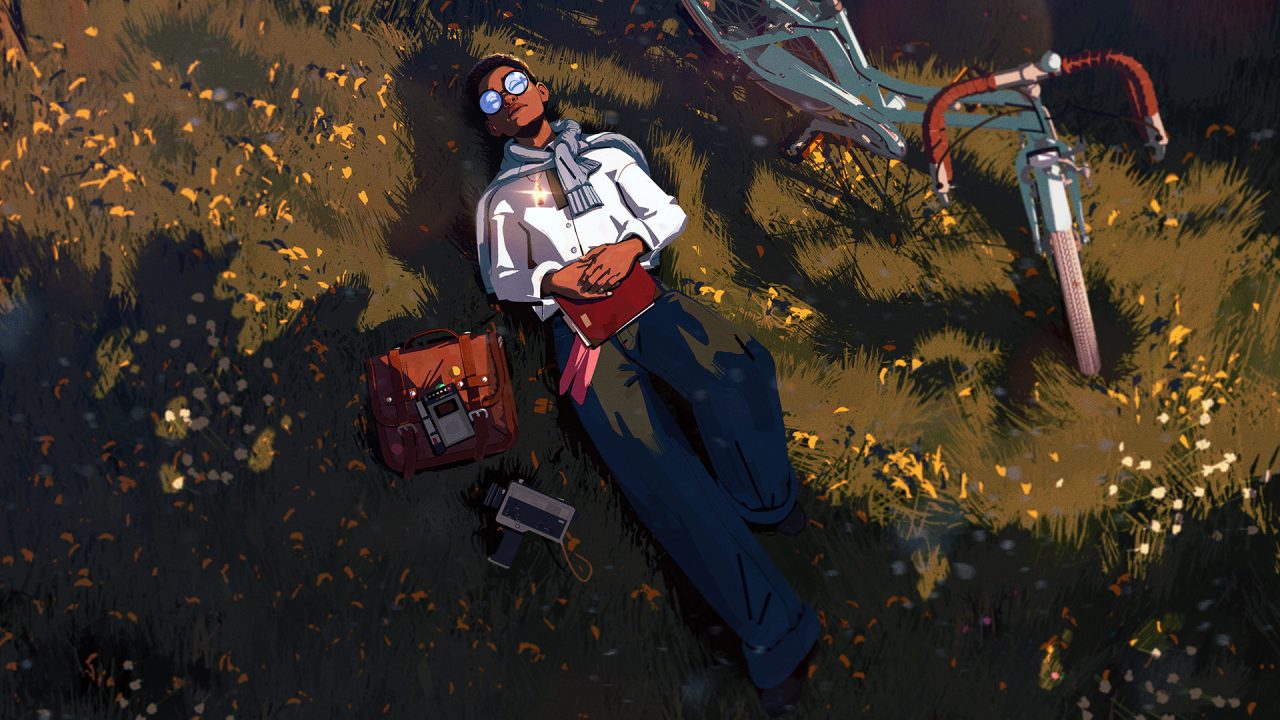
SEASON: A letter to the future is an experimental, thoughtful gaming experience centered around the idea of someone leaving their home for the first time, cataloging their journey before the world (as they know it) ends. Canadian-based developer and publisher Scavengers Studio created a setting that very much feels alive, with characters and designs that’d be right at home in a Studio Ghibli film. Cycling through landscapes and piecing together stories at each location by gathering clues from trinkets and artifacts left behind and interacting with the few remaining people leaves a lasting impression. There’s no combat to be found and no adversary to overcome as you compile your findings into a scrapbook of what you feel is most important to carry on to whoever might pick it up in the future. SEASON: A letter to the future is reflective and haunting in equal measure, somber yet poignantly hopeful.
Star Wars: Knights of the Old Republic
BioWare (Edmonton, Alberta)
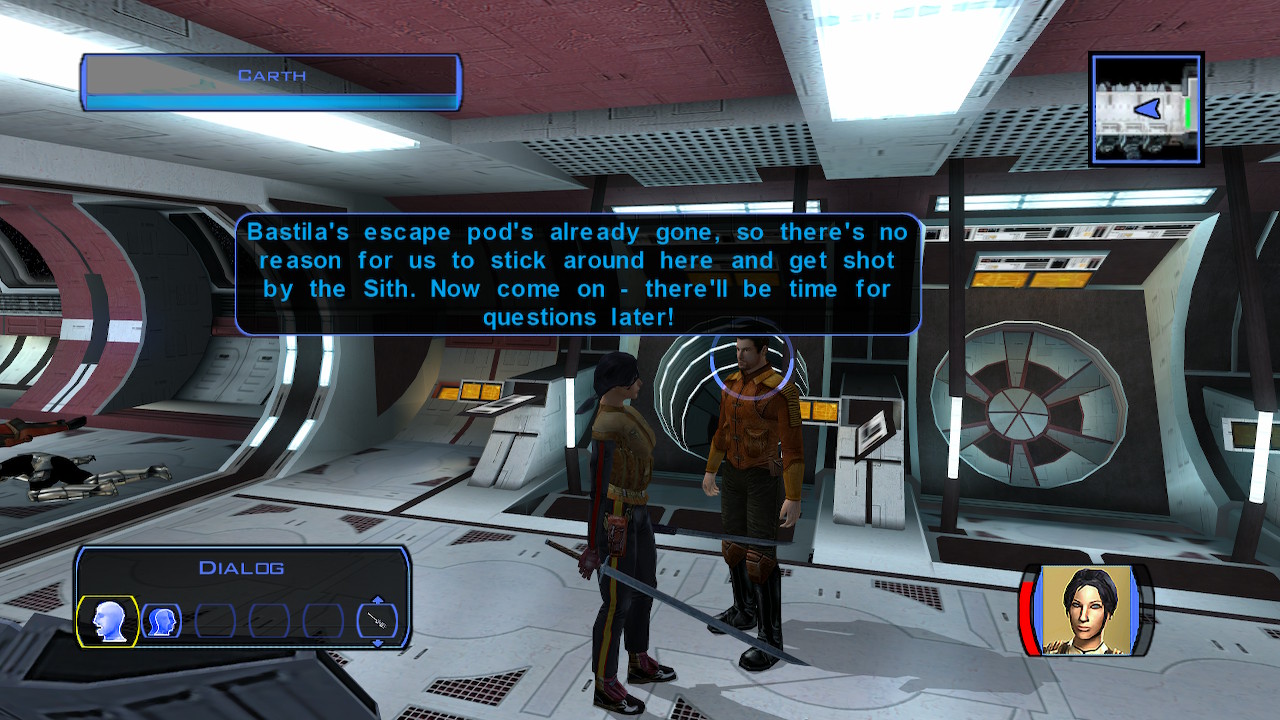

BioWare might be most known in the sci-fi RPG field for their Mass Effect series, yet it was the Canadian developer’s earlier foray into a licensed science fantasy franchise in a galaxy far, far away that arguably helped pave the way for that franchise. Admittedly, my first exposure to Star Wars: Knights of the Old Republic came rather late, as I played the Switch port in 2021. While having some rough and dated gameplay mechanics, the 2003 adventure still proved to be entertaining and choice-heavy, placing you at the heart of an interactive Star Wars tale. The story and music presentation have a wonderful cinematic quality, and the game’s well-known “big twist” plot point still has an impact after all this time. Knights of the Old Republic is a BioWare title fans of their later games, as well as Star Wars enthusiasts, should check out.
The Vale: Shadow of the Crown
Falling Squirrel (St. Catharines, Ontario)
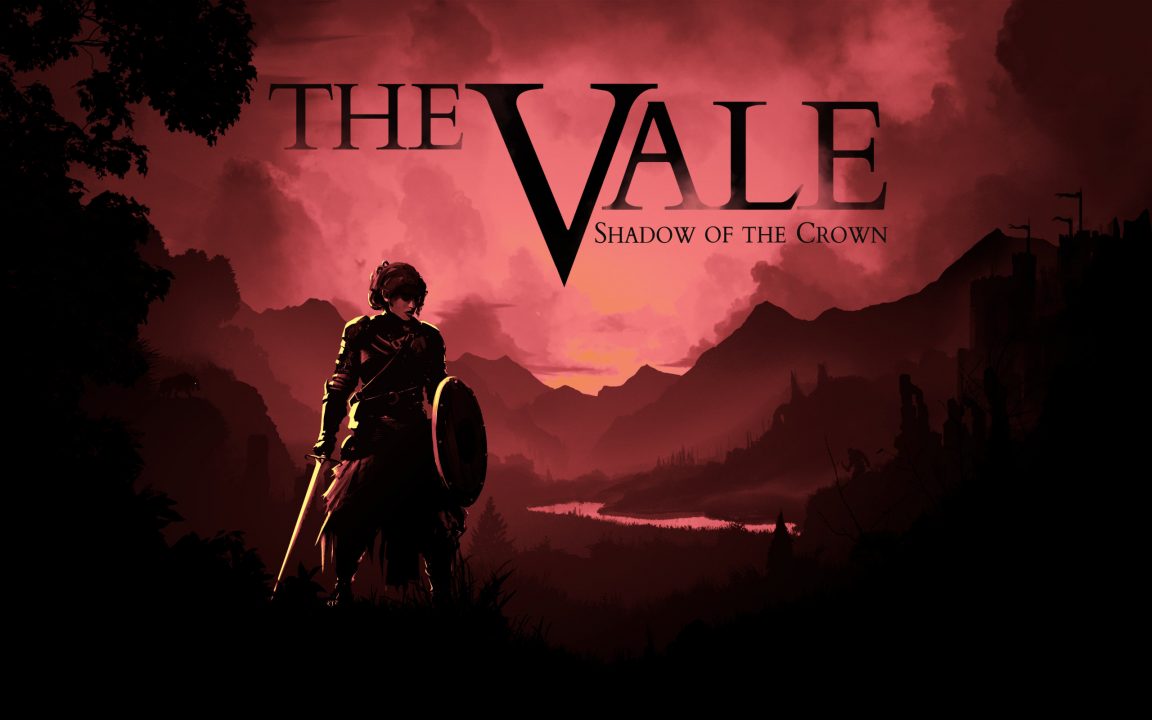

Canadian-based developers Creative Bytes Studios and Falling Squirrel accomplished an impressive feat by creating an RPG that relies solely on the auditory to convey its gameplay mechanics. Players step into the role of Alex, a blind princess left fending for herself after her traveling caravan is attacked. Can she survive, get safely home, and warn her kingdom about an impending invasion? By stepping into Alex’s shoes, you experience a fully immersive and surprisingly detailed RPG in a new way as you navigate its various story scenes and battles by sound. It’s an incredibly creative and innovative RPG, and is an ideal gaming experience not only for those with vision impairments, but to allow players without that experience the chance to immerse themselves in a completely different sensory perspective than they’re used to. The well-written fantasy narrative with nuanced characters also makes The Vale: Shadow of the Crown satisfying.
Zach Wilkerson
1000xRESIST
sunset visitor (Vancouver, British Columbia)
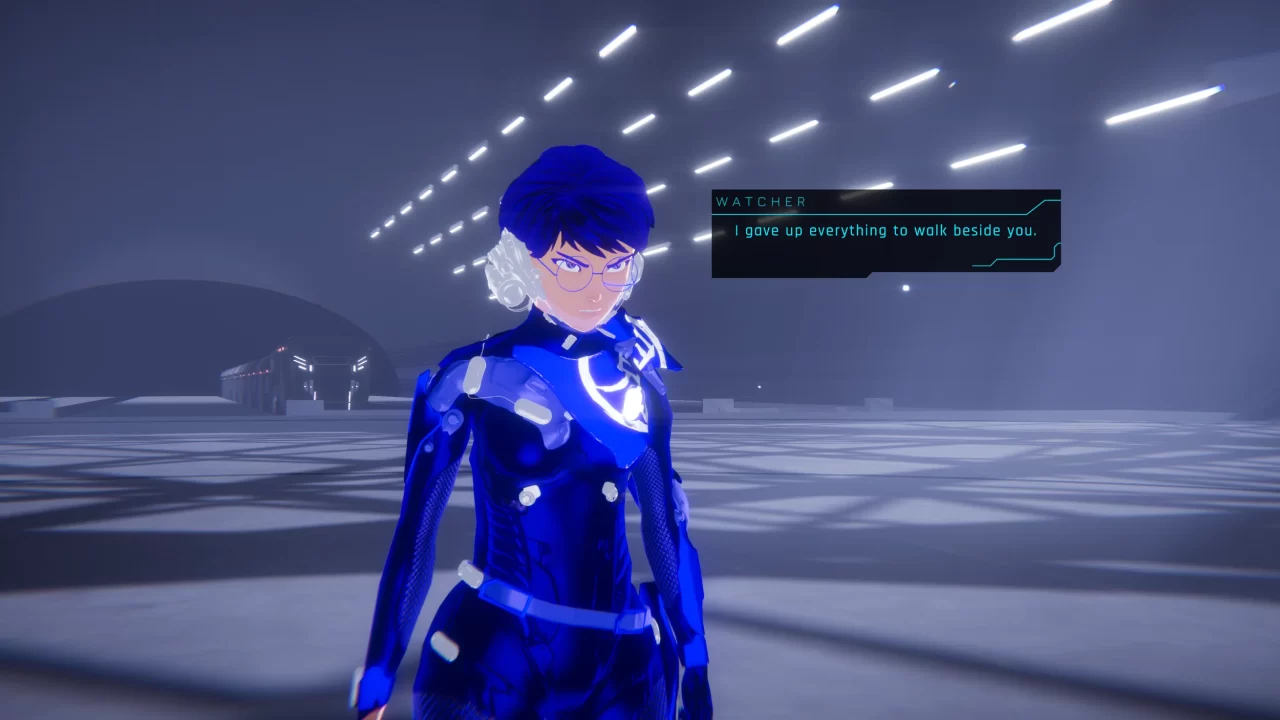
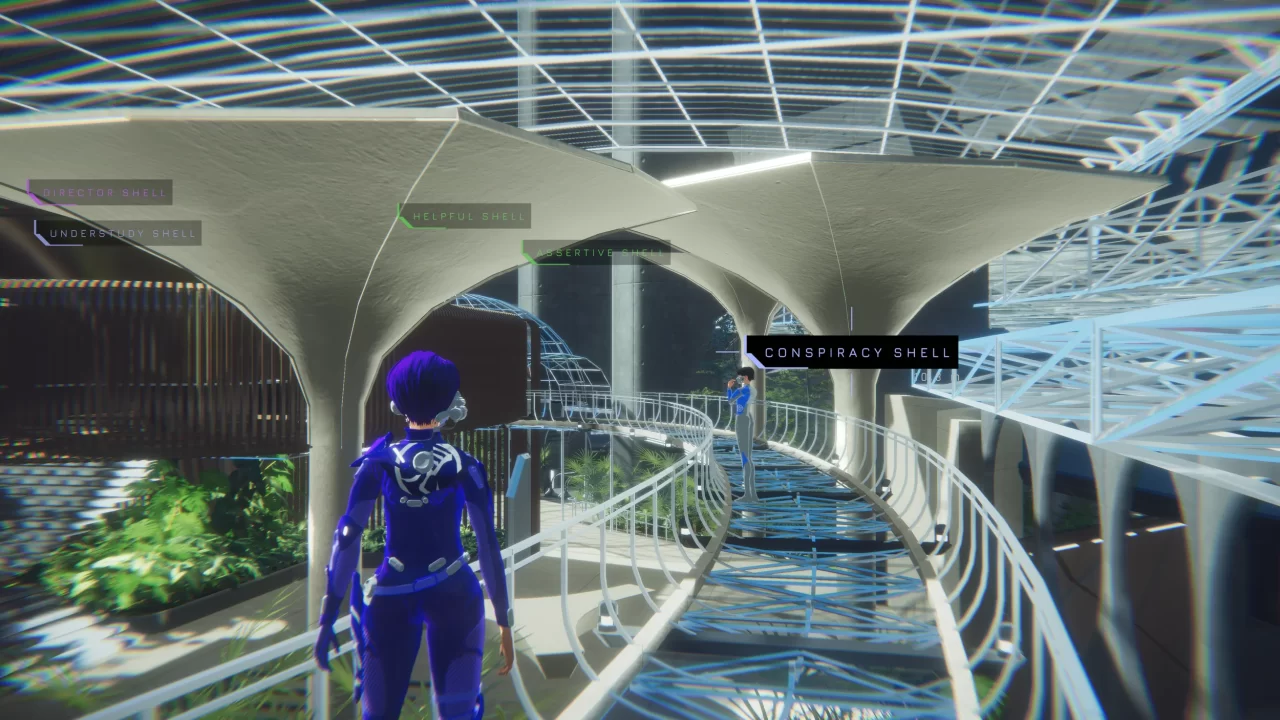
The best game I’ve played so far this decade is Canadian, and it’s 1000xRESIST.
On the surface, that might seem hard to believe; 1000xRESIST mostly amounts to a walking simulator, and the gameplay elements, while brief, aren’t inspiring.
But the truth is that 1000xRESIST is simply reaching higher and swinging bigger than 99% of other video games. Not only is it a compelling dystopian story about how a society might move forward in the face of devastation, it’s also a story about diaspora, generational trauma, and what we do when the people we admire fail to live up to our feelings. It is a very specific story in many ways, a highly Canadian story no less, but that makes it all the more universal, and it’s a masterpiece. To put it lightly, I can’t wait to see what sunset visitor gets up to next. I won’t wait almost a year to pick it up, that’s for sure.
Other Resources
Obviously, there are far more Canadian games than we can comfortably chat about in the limited space of this feature.
If you are looking for more games made north of the 49th parallel, here is a not-at-all comprehensive list, both within and outside of RPGFan’s coverage. We’ve also included links to their developers. Some you might recognize instantly and be surprised that they are Canadian, while others simply pique your curiosity. But I assure you, all these games are well worth your attention!
Within RPGFan Coverage
- Analogue: A Hate Story, Digital: A Love Story, Ladykiller in a Bind, Get in the Car, Loser! – Love Conquers All Games (Christine Love), Toronto, Ontario
- At Fate’s End & Spiritfarer – Thunder Lotus Games, Montreal, Quebec
- Baldur’s Gate: Enhanced Edition, Baldur’s Gate II: Enhanced Edition, Neverwinter Nights: Enhanced Edition – Beamdog, Edmonton, Alberta
- Blighted & Nobody Saves the World (also Guacamelee! & Guacamelee! 2)- Drinkbox Studios, Toronto, Ontario
- Child of Light – Ubisoft Montreal, Montreal, Quebec
- The Crimson Diamond – Julia Minamata, Toronto, Ontario
- Crypt of the NecroDancer & Cadence of Hyrule – Brace Yourself Games, Vancouver, British Columbia
- Darkest Dungeon & Darkest Dungeon II – Red Hook Studios, Vancouver, British Columbia
- DeathSpank – Hothead Games, Vancouver, Canada
- Goodbye Volcano High – KO_OP, Montreal, Quebec
- Lost Records: Bloom & Rage – Don’t Nod Montreal, Montreal, Quebec
- Marvel’s Guardians of the Galaxy – Eidos-Montréal, Montreal, Quebec
- Neverwinter Nights – BioWare, Edmonton, Alberta
- Sea of Stars (also The Messenger) – Sabotage Studio, Quebec City, Quebec
- Superbrothers: Sword & Sworcery EP – Superbrothers & Capybara Games, Toronto, Ontario
Outside of RPGFan Coverage
- Age of Empires IV – Relic Entertainment, Vancouver, British Columbia
- Balatro – LocalThunk, Canada
- Batman: Arkham Origins, Gotham Knights – WB Games Montreal, Montreal, Quebec
- Bendy and the Ink Machine, Bendy and the Dark Revival – Joey Drew Studios, Ottawa, Ontario
- Cuphead – Studio MDHR, Oakville, Ontario
- Don’t Starve – Klei Entertainment, Vancouver, British Columbia
- Far Cry 2, 3, Blood Dragon, 4, & 5, New Dawn, Primal – Ubisoft Montreal, Montreal, Quebec
- Far Cry 6 – Ubisoft Toronto, Toronto, Ontario
- Fez – Polytron/Phil Fish, Toronto, Ontario/Montreal, Quebec
- Gears of War – The Coalition, Vancouver, British Columbia
- Homeworld and Homeworld 2 – Relic Entertainment, Vancouver, British Columbia
- Homeworld 3 – Blackbird Interactive, Vancouver, British Columbia
- Invisible, Inc. – Klei Entertainment, Vancouver, British Columbia
- Jazzpunk – Necrophone Games, Toronto, ON
- Jotun & Sundered – Thunder Lotus Games, Montreal, Quebec
- Keep Talking and Nobody Explodes – Steel Crate Games, Ottawa, Ontario
- Lovers in a Dangerous Spacetime – Asteroid Base, Toronto, Ontario
- N++ – Metanet Software, Toronto, Ontario
- Nightingale – Inflexion Games, Edmonton, Alberta
- Papo and Yo – Minority Media Inc., Montreal, Quebec
- Pony Island, Inscryption, Pony Island 2: Panda Circus – Daniel Mullins, Vancouver, British Columbia
- Sang-Froid: Tales of Werewolves – Artifice Studio, Longueuil, Quebec
- Super Mario Strikers, Punch-Out!!, Luigi’s Mansion: Dark Moon, Luigi’s Mansion 3, Mario Strikers: Battle League – Next Level Games, Vancouver, British Columbia
- Venba – Visai Games, Toronto, Ontario
- We Happy Few, South of Midnight – Compulsion Games, Montreal, Quebec

